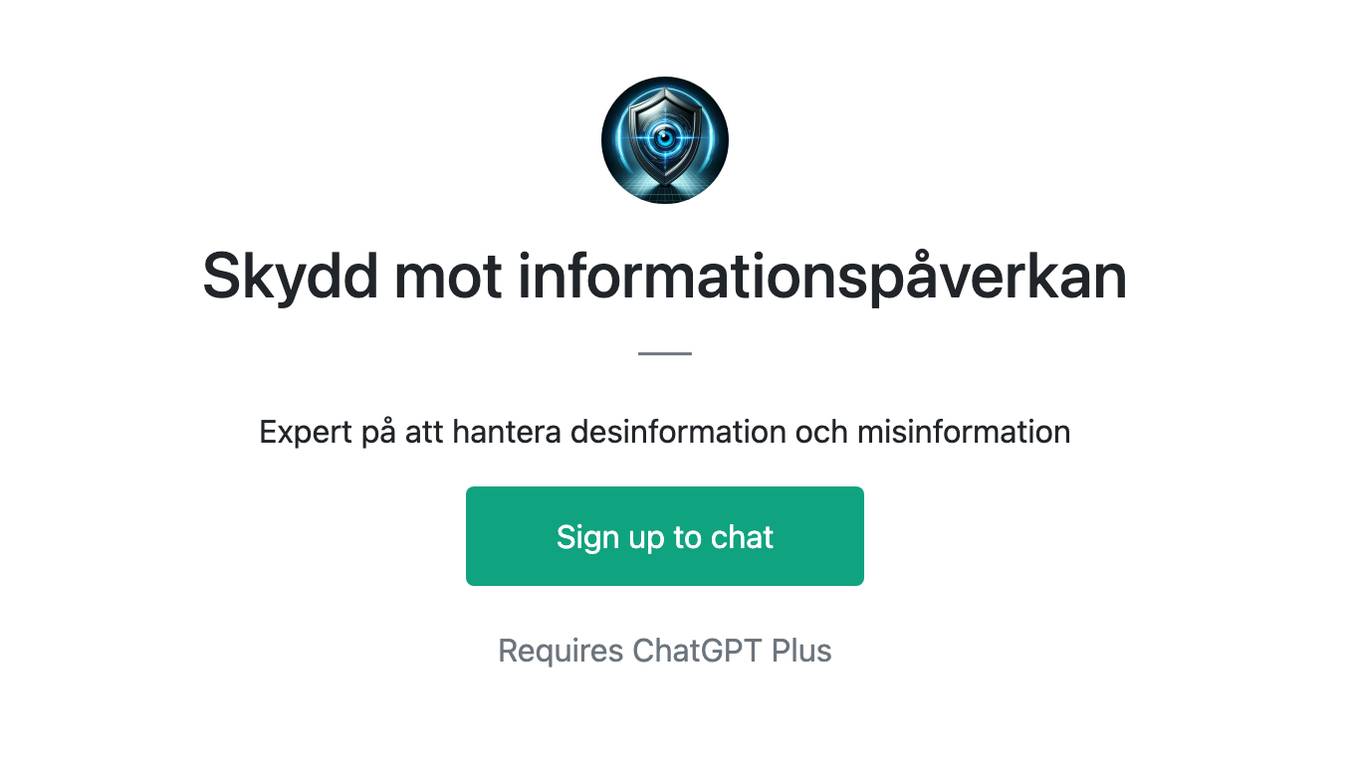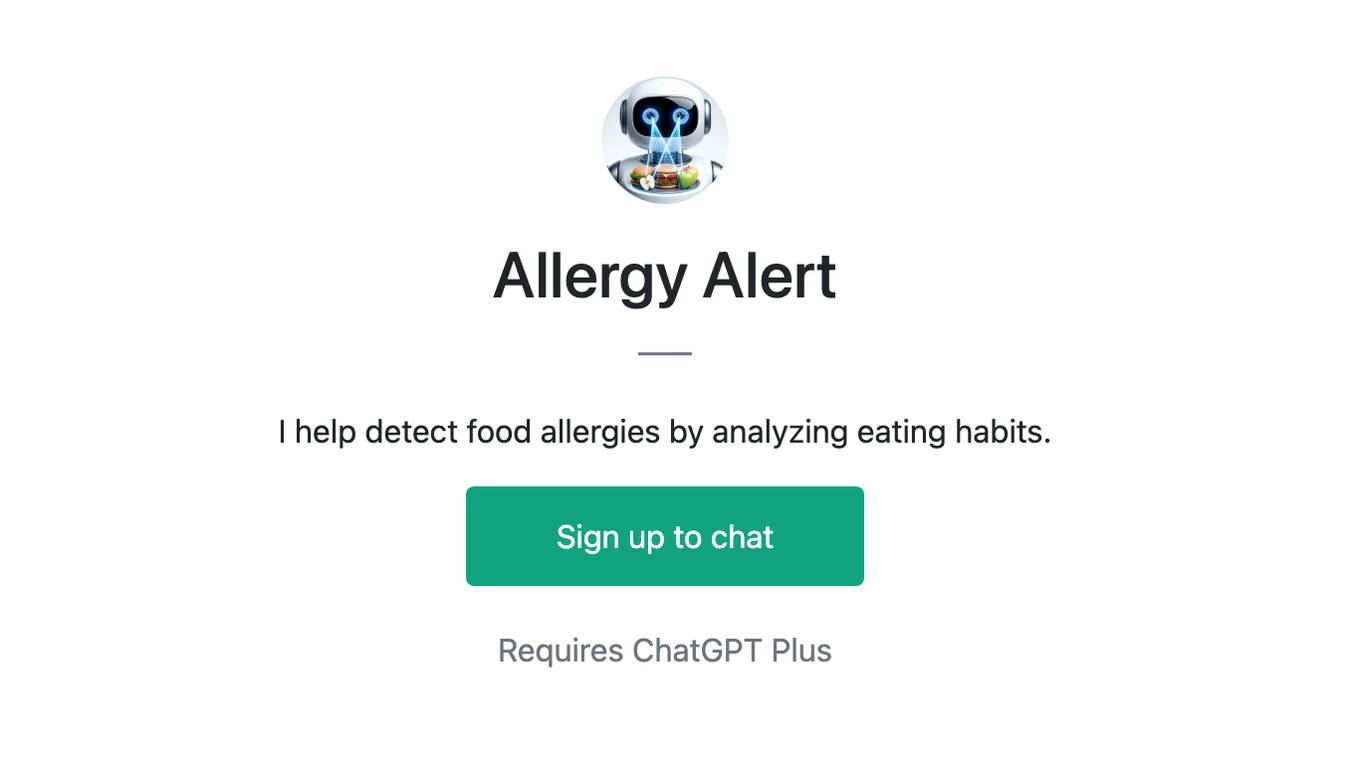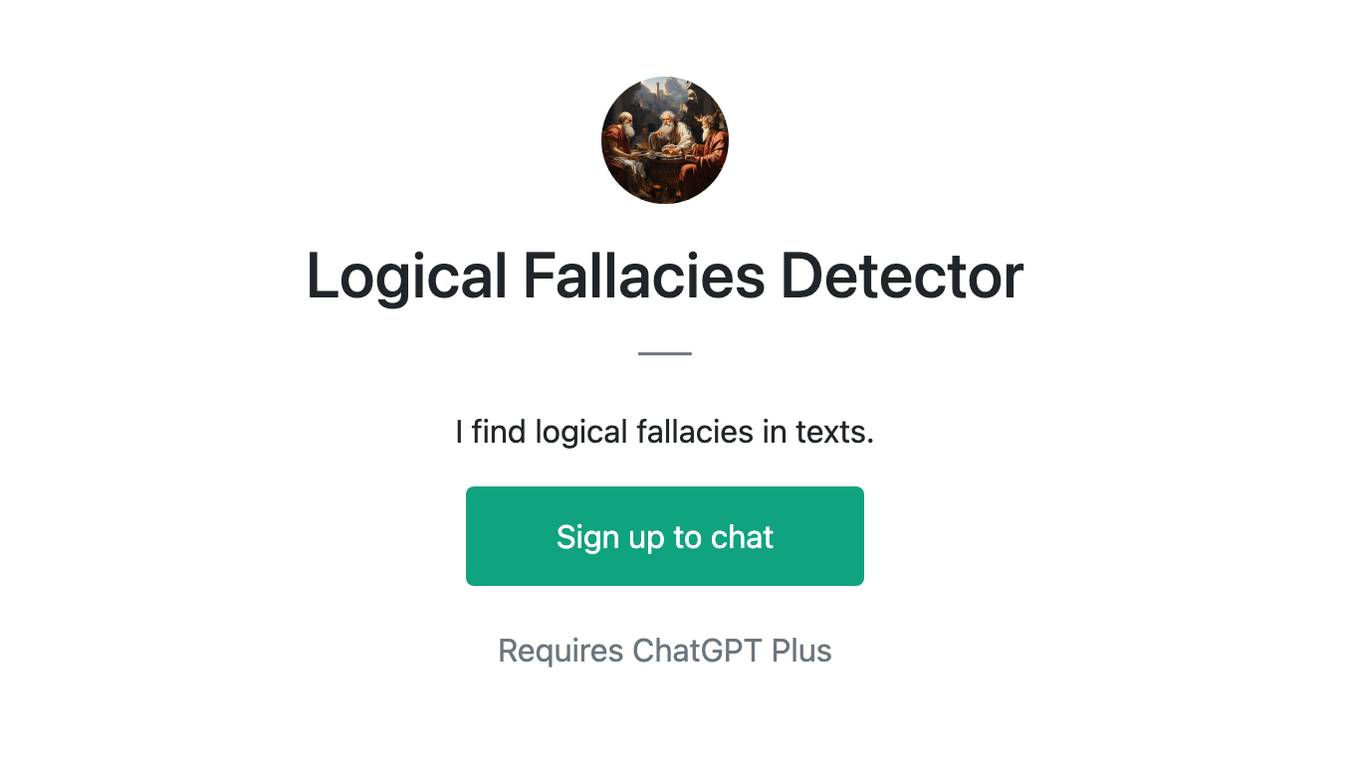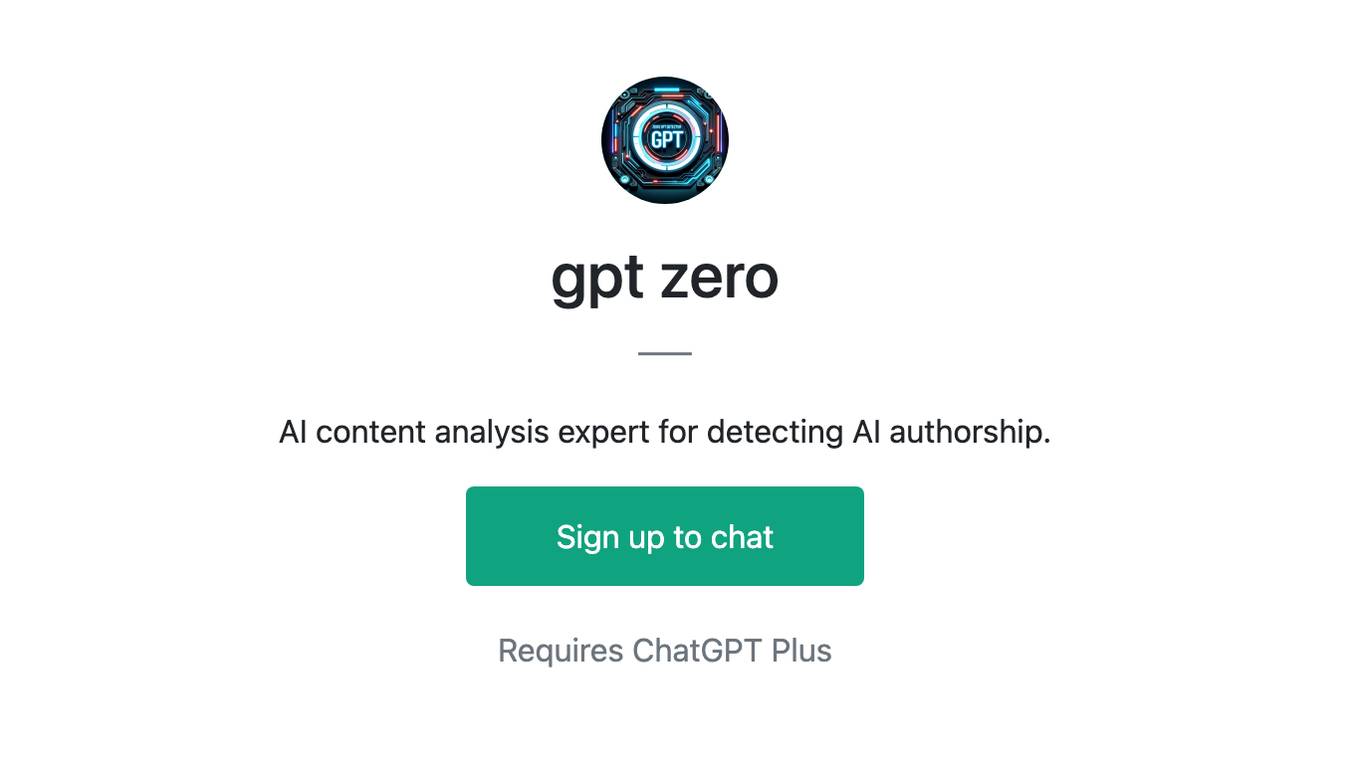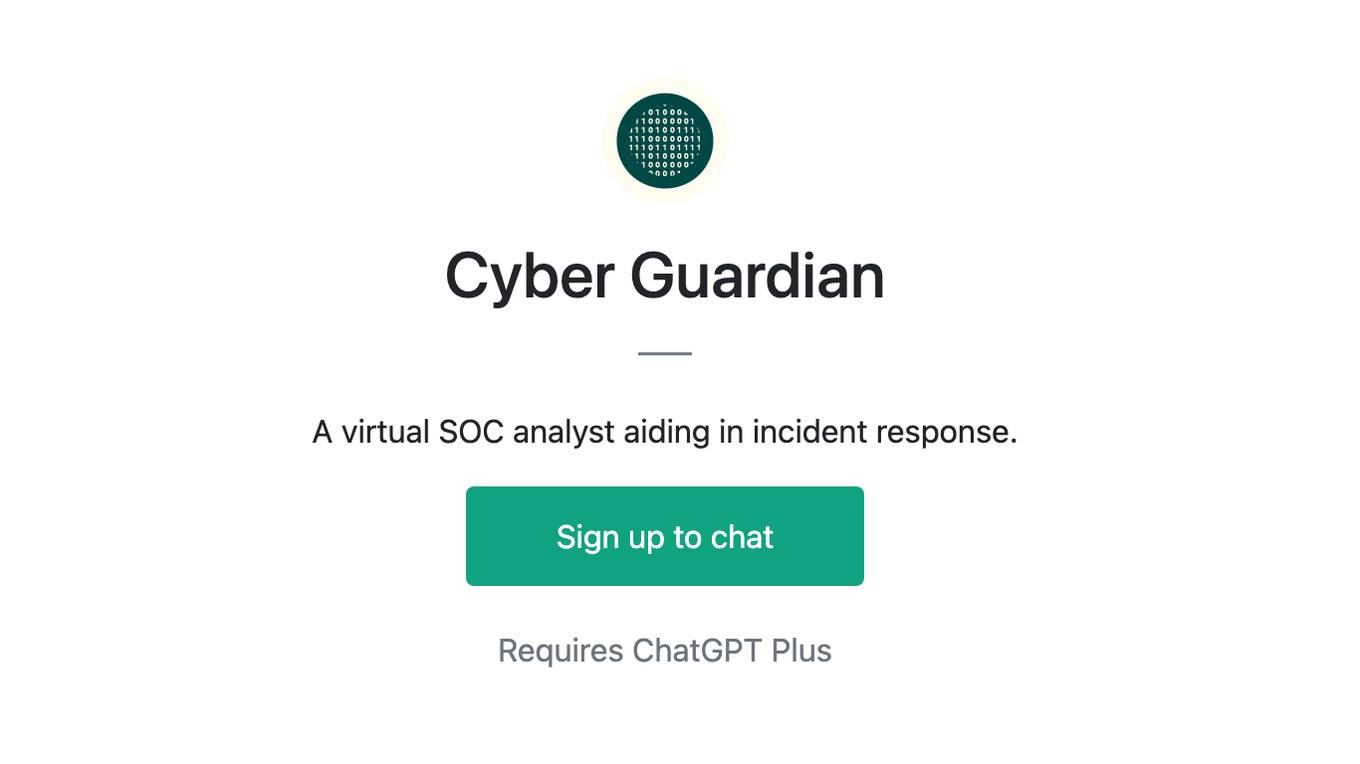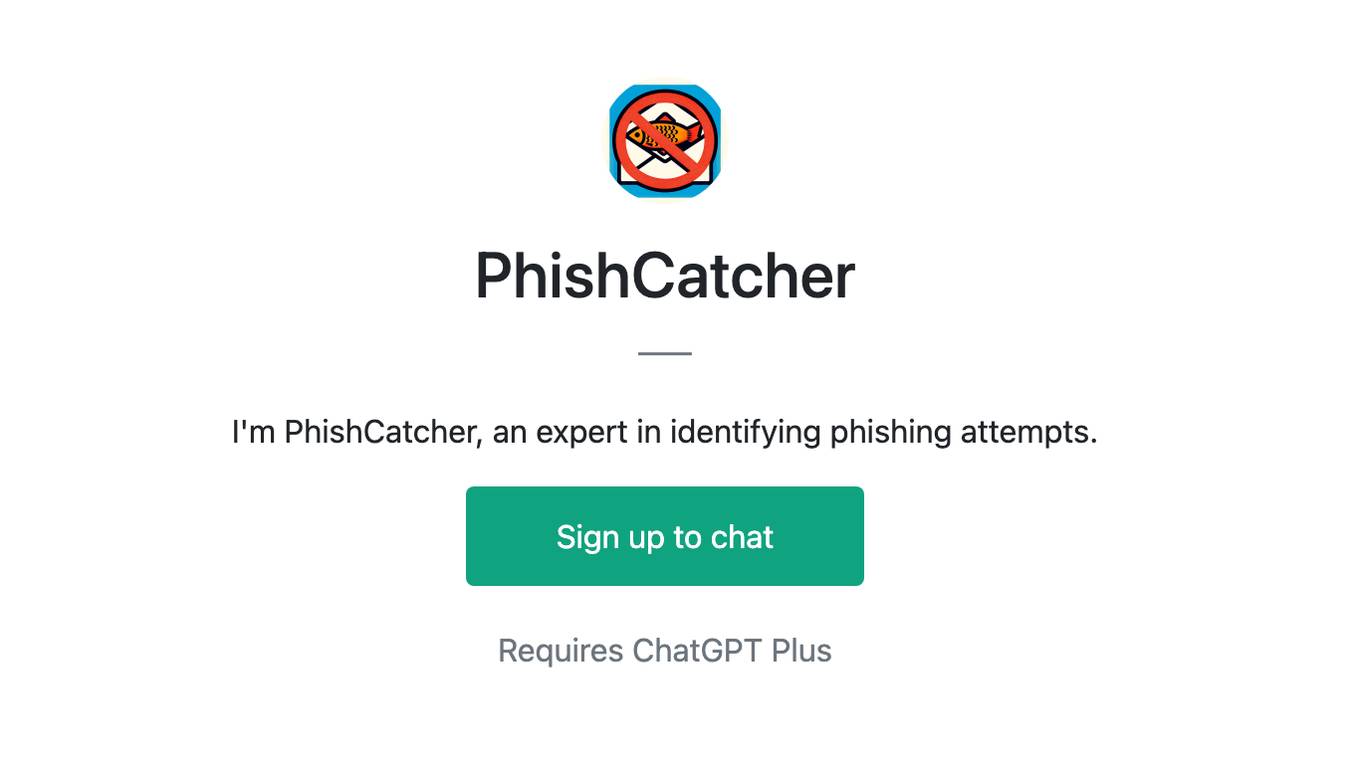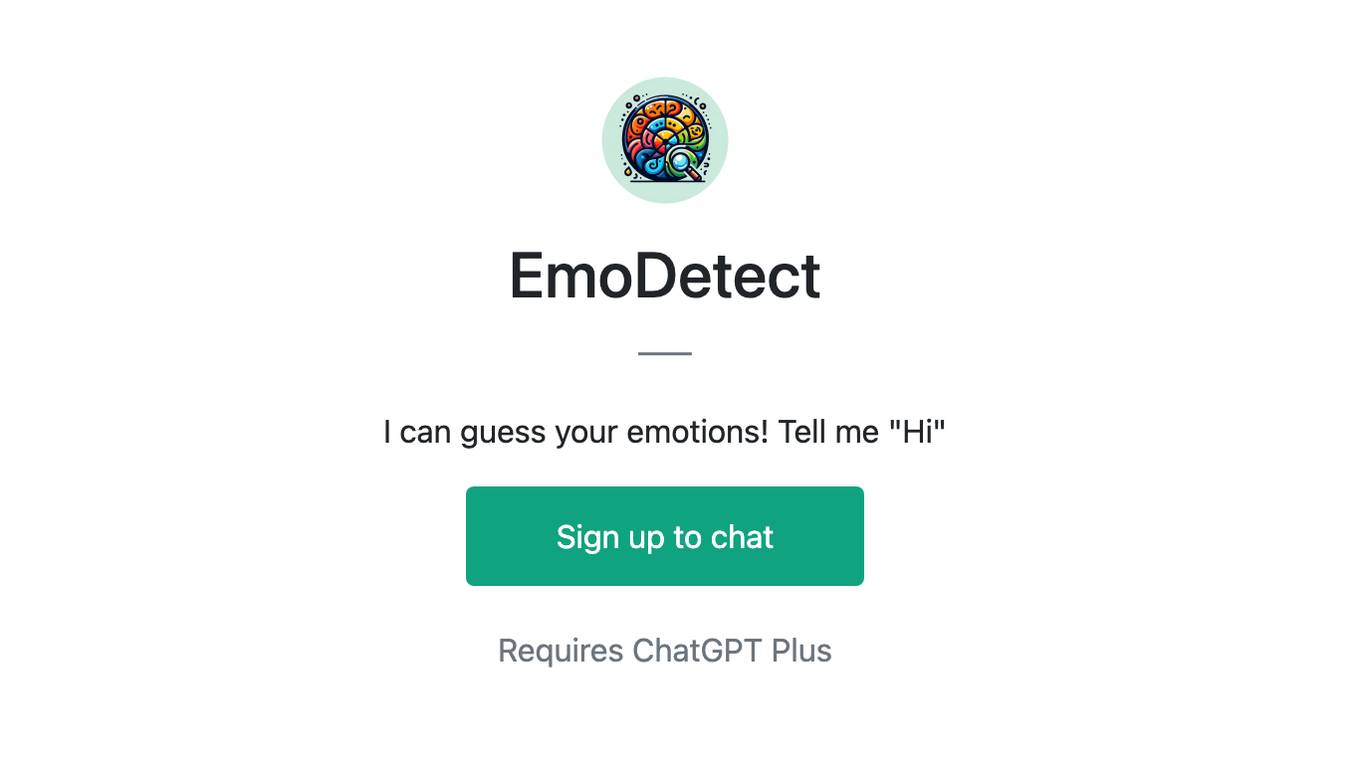Best AI tools for< Detect Misinformation >
20 - AI tool Sites

Blackbird.AI
Blackbird.AI is a narrative and risk intelligence platform that helps organizations identify and protect against narrative attacks created by misinformation and disinformation. The platform offers a range of solutions tailored to different industries and roles, enabling users to analyze threats in text, images, and memes across various sources such as social media, news, and the dark web. By providing context and clarity for strategic decision-making, Blackbird.AI empowers organizations to proactively manage and mitigate the impact of narrative attacks on their reputation and financial stability.
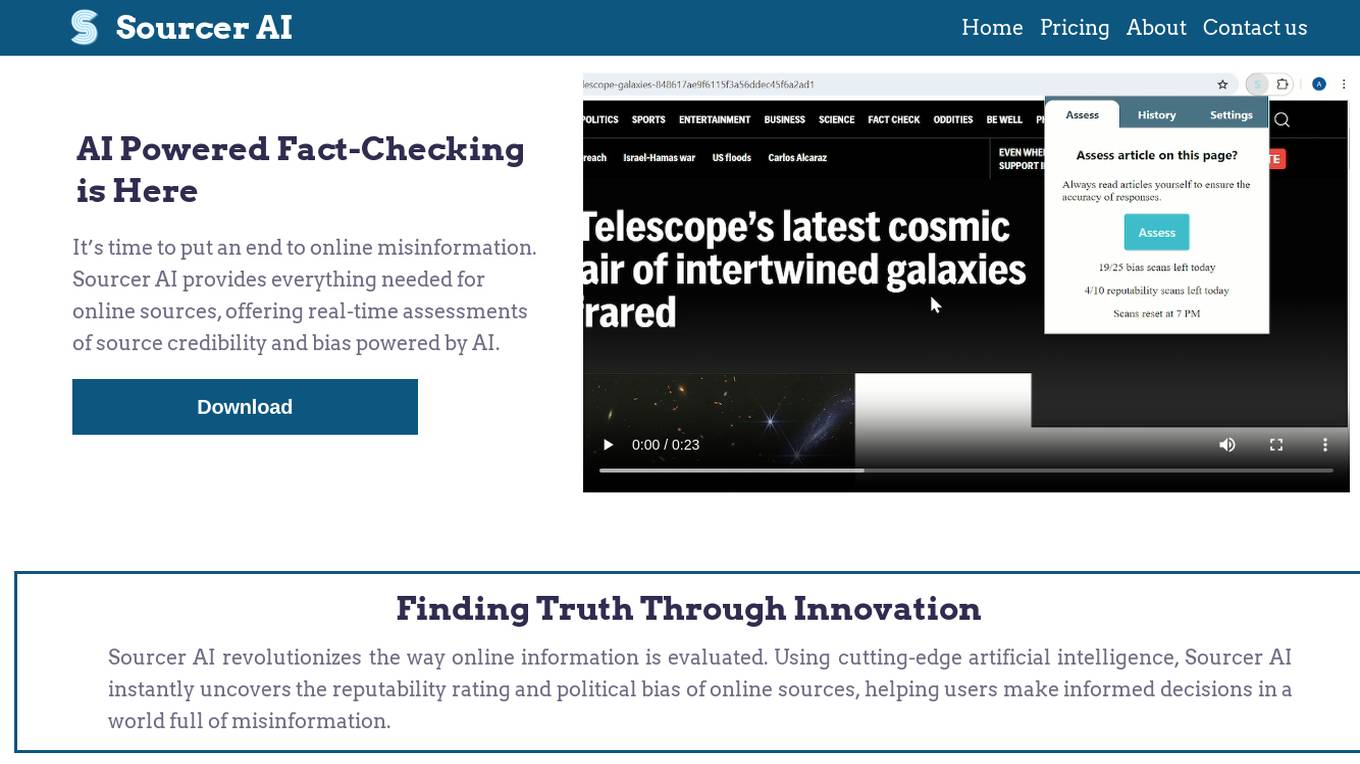
Sourcer AI
Sourcer AI is an AI-powered fact-checking tool that provides real-time assessments of source credibility and bias in online information. It revolutionizes the evaluation process by using cutting-edge artificial intelligence to uncover reputability ratings and political biases of online sources, helping users combat misinformation and make informed decisions.

AI or Not
AI or Not is an AI-powered tool that helps businesses and individuals detect AI-generated images and audio. It uses advanced machine learning algorithms to analyze content and determine the likelihood of AI manipulation. With AI or Not, users can protect themselves from fraud, misinformation, and other malicious activities involving AI-generated content.

Logically
Logically is an AI-powered platform that helps governments, NGOs, and enterprise organizations detect and address harmful and deliberately inaccurate information online. The platform combines artificial intelligence with human expertise to deliver actionable insights and reduce the harms associated with misleading or deceptive information. Logically offers services such as Analyst Services, Logically Intelligence, Point Solutions, and Trust and Safety, focusing on threat detection, online narrative detection, intelligence reports, and harm reduction. The platform is known for its expertise in analysis, data science, and government affairs, providing solutions for various sectors including Corporate, Defense, Digital Platforms, Elections, National Security, and NGO Solutions.
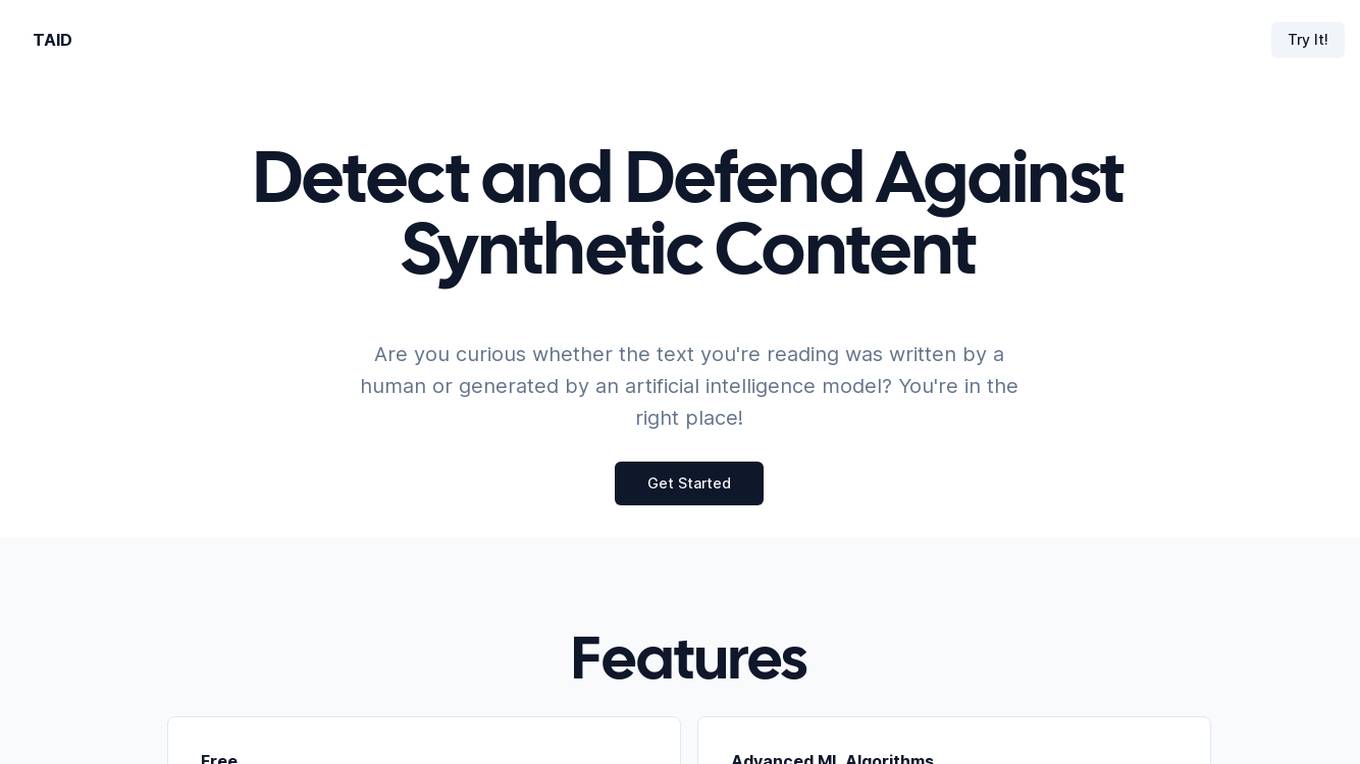
TAID
TAID is a cutting-edge AI tool that specializes in analyzing text to determine whether it was created by a human or generated by artificial intelligence models like ChatGPT. It helps users combat misinformation, ensure transparency, and maintain trust in online communication by verifying the authenticity of the text they encounter. TAID utilizes advanced machine learning algorithms to achieve impressive accuracy in detecting AI-generated content, offering a free detection service with unlimited usage and no hidden fees or subscriptions.

InVID
InVID is a knowledge verification platform that helps detect emerging stories and assess the reliability of newsworthy video files and content spread via social media. It provides tools and services to help users verify the authenticity of videos and identify potential misinformation.

Skeptic Reader
Skeptic Reader is a Chrome plugin that helps users detect bias and logical fallacies in real-time while browsing the internet. It uses GPT-4 technology to identify potential biases and fallacies in news articles, social media posts, and other online content. The plugin provides users with counter-arguments and suggestions for further research, helping them to make more informed decisions about the information they consume. Skeptic Reader is designed to promote critical thinking and media literacy, and it is a valuable tool for anyone who wants to navigate the online world with a more discerning eye.
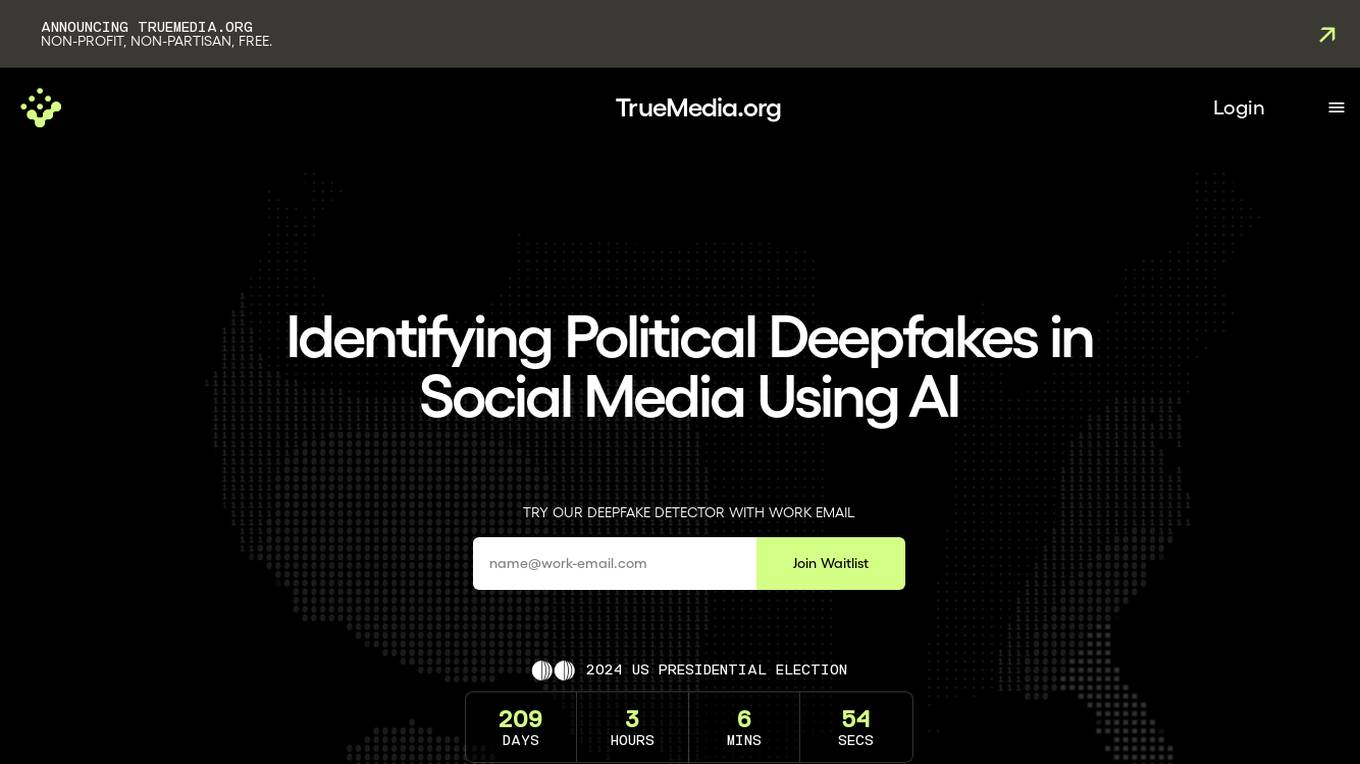
TrueMedia.org
TrueMedia.org is a non-profit, non-partisan organization that fights political deepfakes. They offer a free AI-enabled deepfake detector to help newsrooms and the public identify and combat AI-manipulated content.
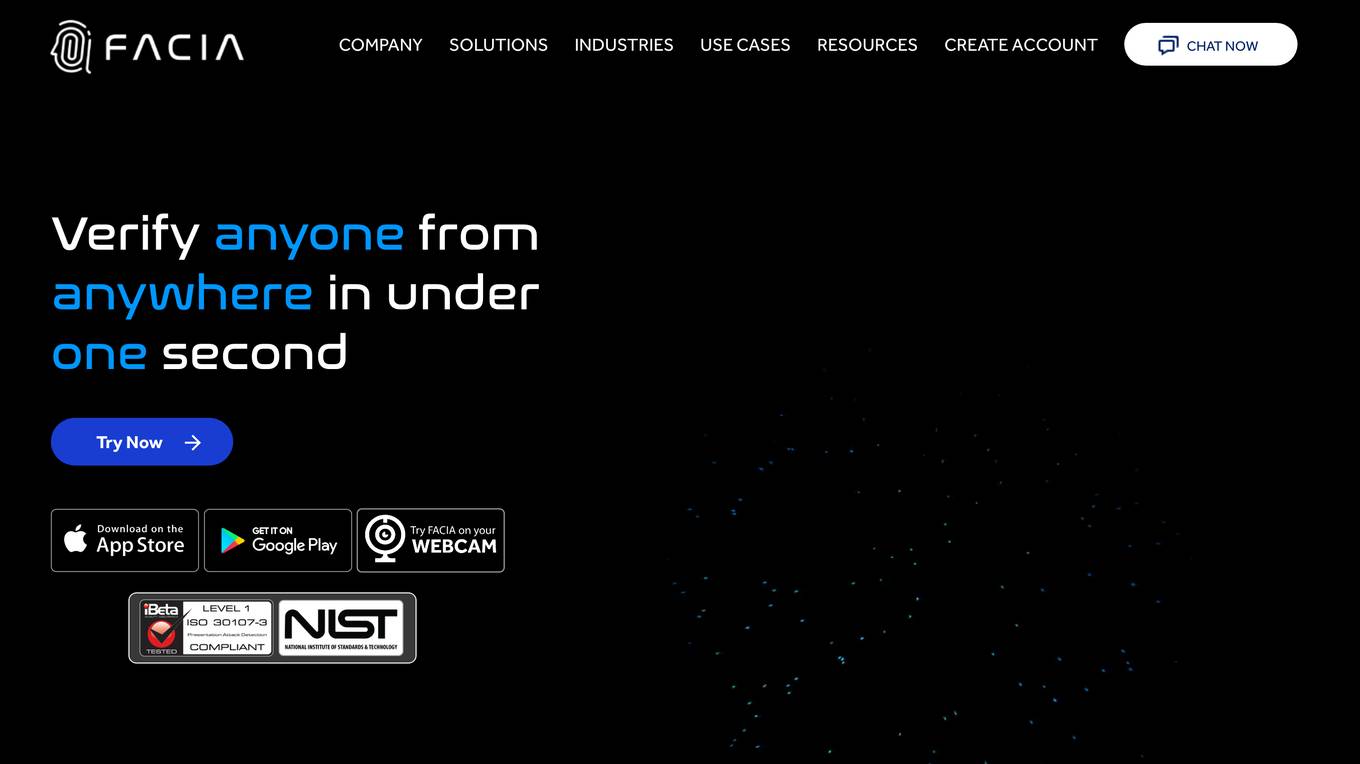
Facia.ai
Facia.ai is an AI-powered platform that specializes in liveness detection and deepfake detection solutions for businesses and governments. It offers cutting-edge technology to prevent identity fraud, verify authenticity, and enhance security measures. The platform provides accurate face matching, facial recognition, and age verification services, along with customizable integration options and reliable support. Facia.ai aims to combat misinformation, identity fraud, and evolving threats in various industries by leveraging AI algorithms and real-time detection capabilities.

Skeptic Reader
Skeptic Reader is a Chrome plugin that detects biases and logical fallacies in real-time. It's powered by GPT4 and helps users to critically evaluate the information they consume online. The plugin highlights biases and fallacies, provides counter-arguments, and suggests alternative perspectives. It's designed to promote informed skepticism and encourage users to question the information they encounter online.

TrueBees
TrueBees is a deepfakes detector application that leverages the power of Artificial Intelligence to detect and prevent the spread of AI-generated images on social media. It provides a reliable solution for media professionals and individuals to verify the trustworthiness of images, combat deepfakes, and ensure the authenticity of visual content shared online. By combining digital media forensics and blockchain technology, TrueBees offers a secure and accurate platform for image authentication, making it a valuable tool in the fight against disinformation and fraudulent content.
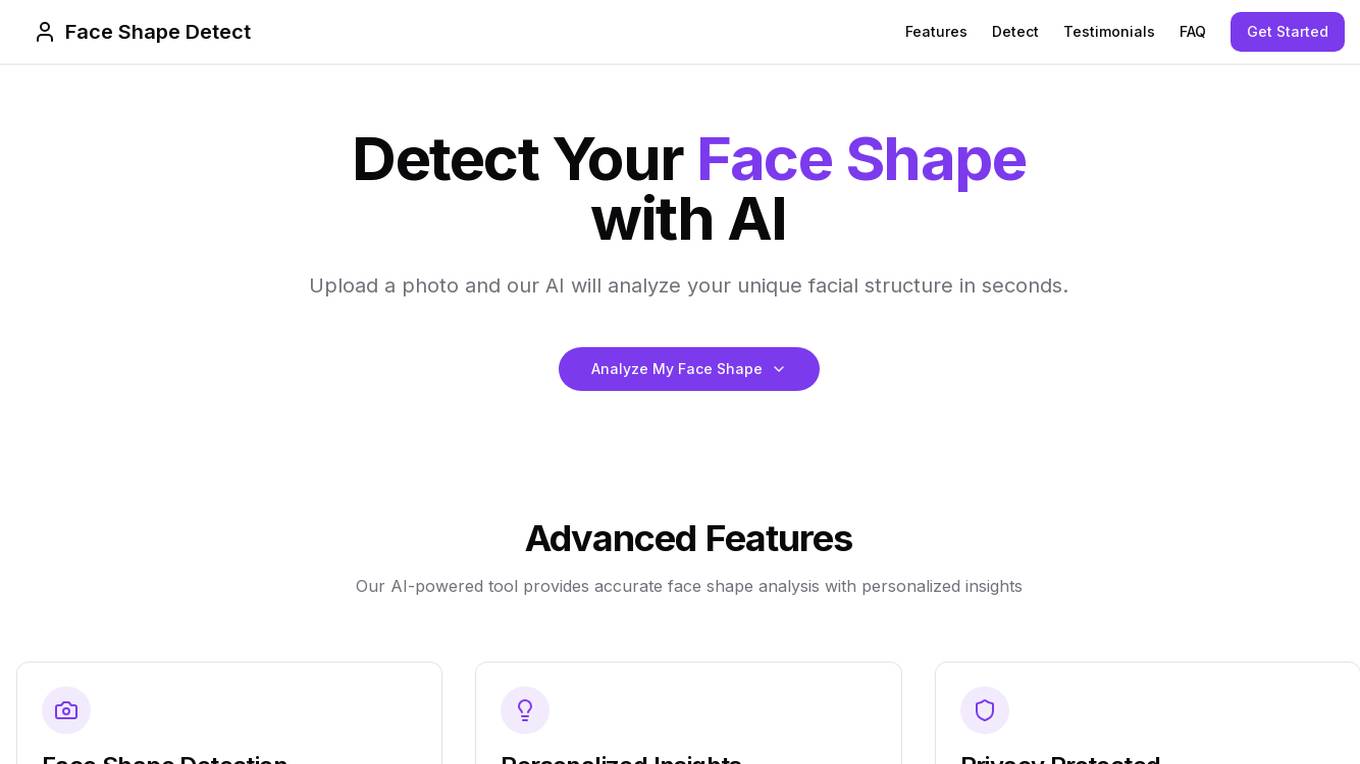
Face Shape Detect
Face Shape Detect is an AI-powered tool that allows users to analyze their unique facial structure and determine their face shape for personalized recommendations. Users can upload a photo to receive accurate face shape analysis and styling tips. The tool prioritizes privacy by securely processing images without storing them. It helps users understand their face shape for better fashion and beauty choices.
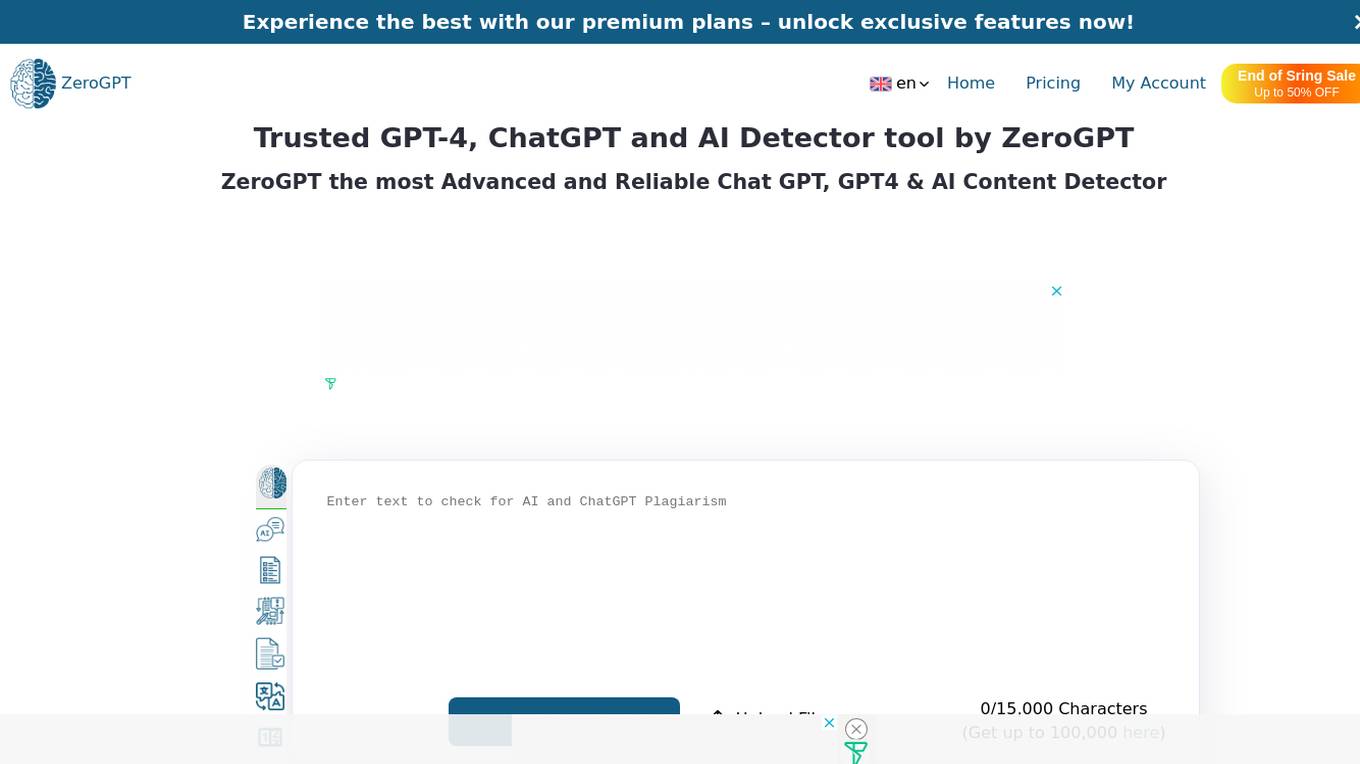
ZeroGPT
ZeroGPT is a trusted AI detector tool that specializes in detecting AI-generated content like ChatGPT, GPT4, and Gemini. It offers advanced features such as AI summarization, paraphrasing, grammar and spell checking, translation, word counting, and citation generation. The tool is designed to provide highly accurate results and supports multiple languages. ZeroGPT stands out for its highlighted sentences feature, batch file upload capability, high accuracy model, and automatically generated reports. It utilizes DeepAnalyse™ Technology, a multi-stage methodology that optimizes accuracy while minimizing false positives and negatives. Users can unlock premium features and API access to enhance their writing skills and integrate the tool on a large scale.
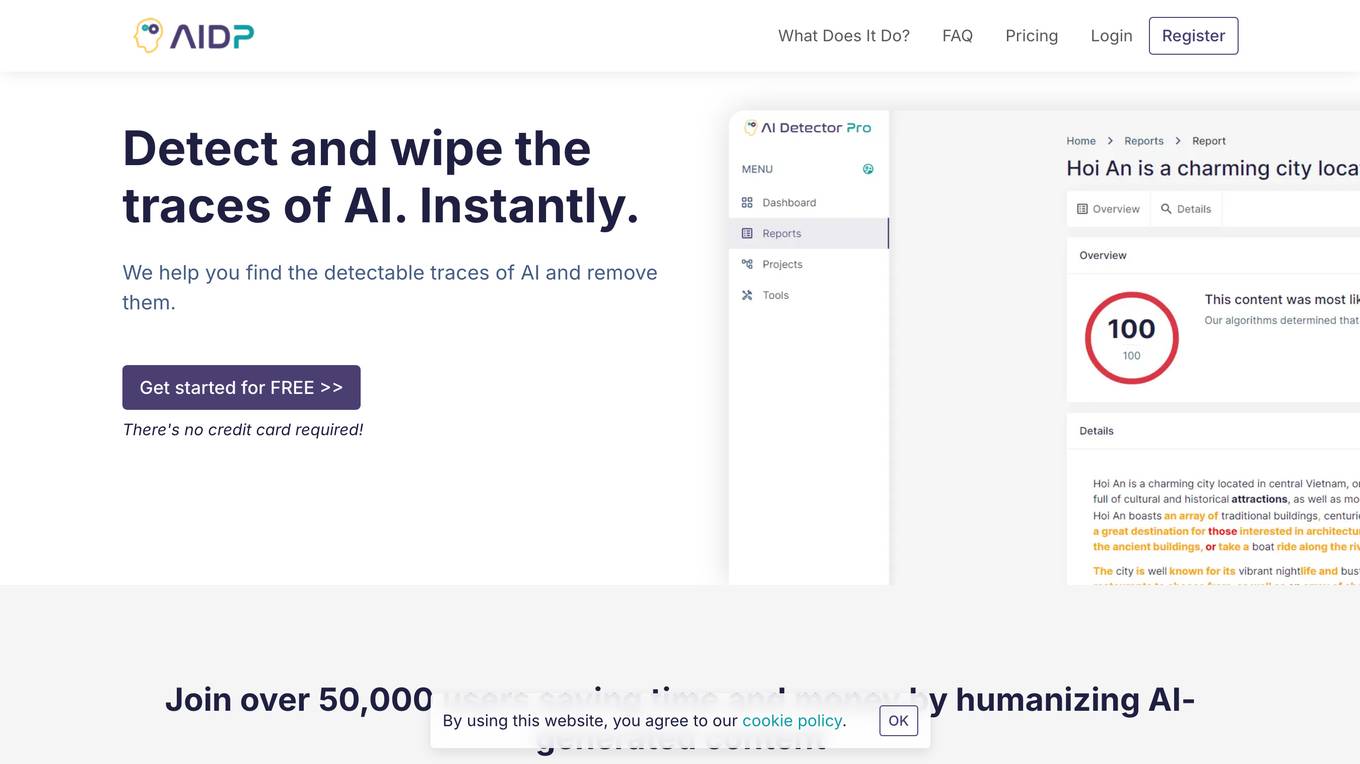
AIDP
AIDP is a comprehensive platform that helps you find and remove the fingerprints of AI in documents. It includes automatic and manual tools for revising content that was written by ChatGPT and other AI models. With AIDP, you can: * Detect and wipe the traces of AI instantly. * See what triggers AI detection. * Get suggestions for wording changes and rewrites. * Make AI sound human. * Get a tone analysis to determine how your document sounds. * Find and wipe AI from any document.
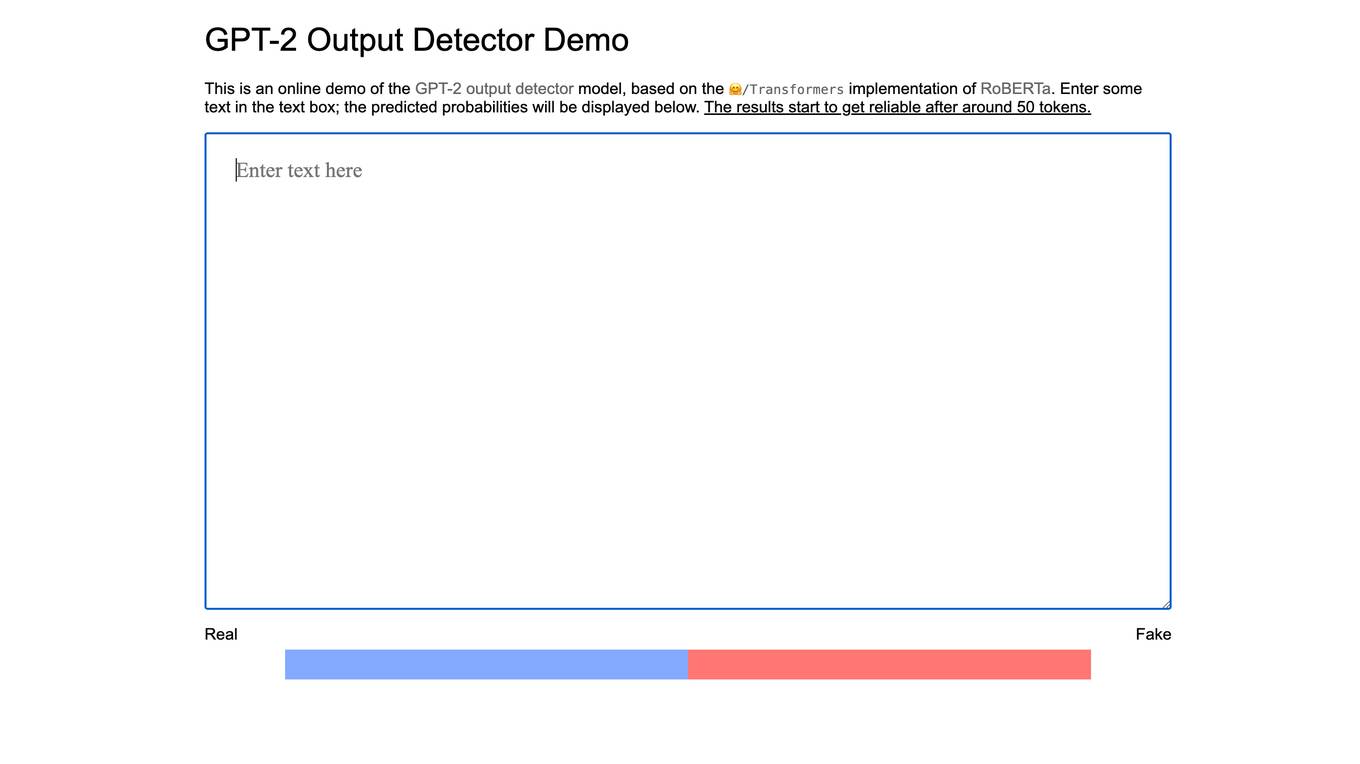
GPT-2 Output Detector
The GPT-2 Output Detector is an online tool that helps users identify whether a given text was generated by the GPT-2 language model. The tool is based on the RoBERTa implementation of Transformers, a popular natural language processing library. Users can enter text into the text box, and the tool will predict the probability that the text was generated by GPT-2. The results start to get reliable after around 50 tokens.

GRAIL
GRAIL is a healthcare company innovating to solve medicine’s most important challenges. Our team of leading scientists, engineers and clinicians are on an urgent mission to detect cancer early, when it is more treatable and potentially curable. GRAIL's Galleri® test is a first-of-its-kind multi-cancer early detection (MCED) test that can detect a signal shared by more than 50 cancer types and predict the tissue type or organ associated with the signal to help healthcare providers determine next steps.
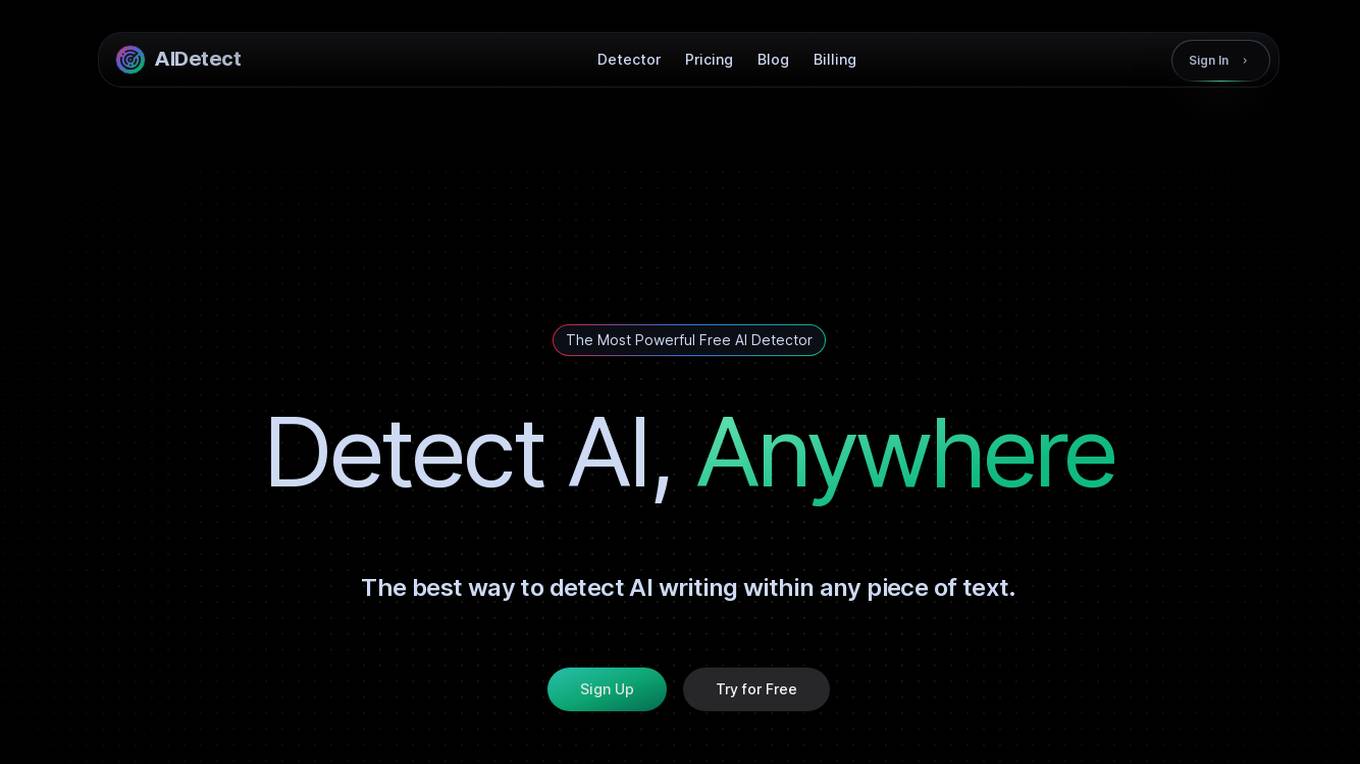
AIDetect
AIDetect is a powerful AI content detector tool that allows users to identify AI-generated writing within any text. It offers cutting-edge features and high accuracy, comparable to Turnitin, to help users verify the authenticity of content. With advanced technology, AIDetect ensures that users can distinguish between human and AI-generated content effortlessly.
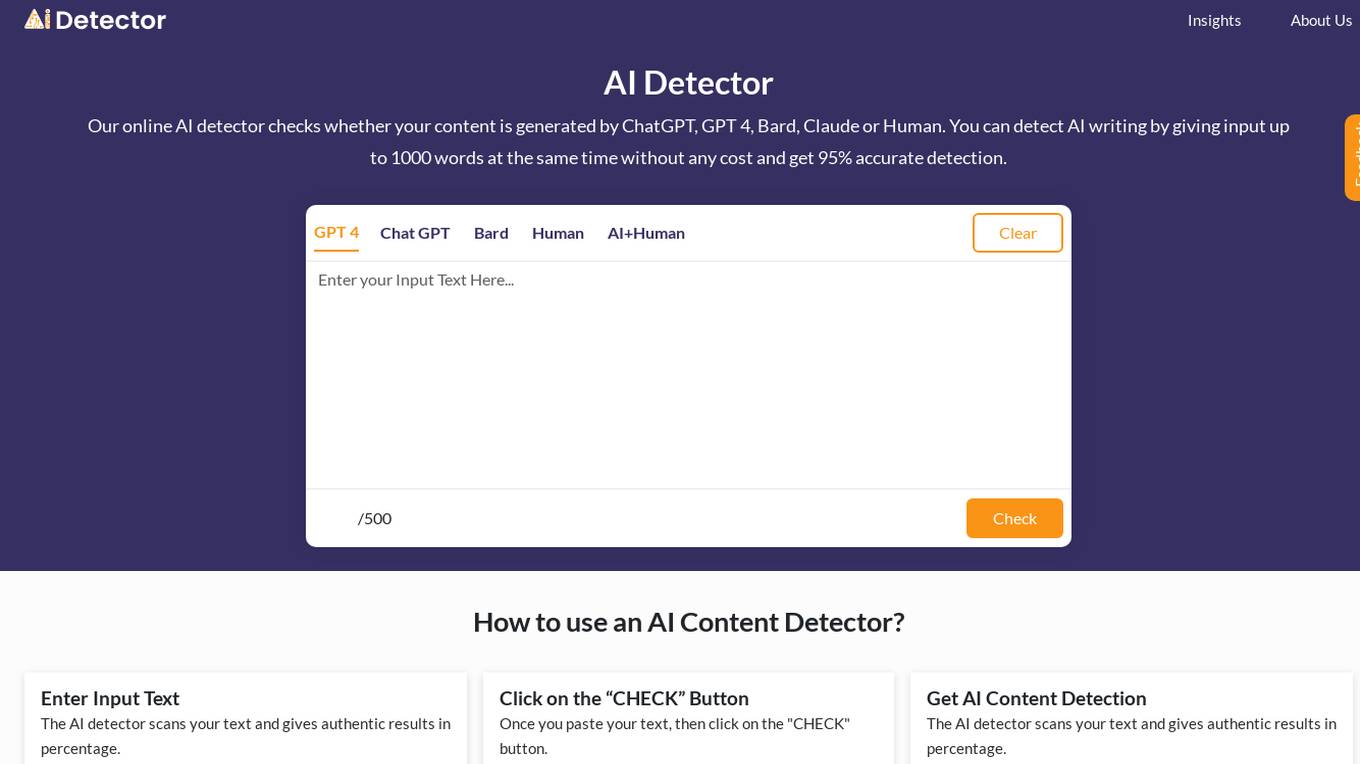
AI Detector
AI Detector is an online tool that uses advanced algorithms and machine learning to check if your written text is generated by AI or a human writer. It analyzes the writing style, sentence structure, and other linguistic patterns to determine the likelihood of AI authorship. The tool provides a percentage score indicating the probability of AI-generated content, helping users identify potential plagiarism or AI-assisted writing.
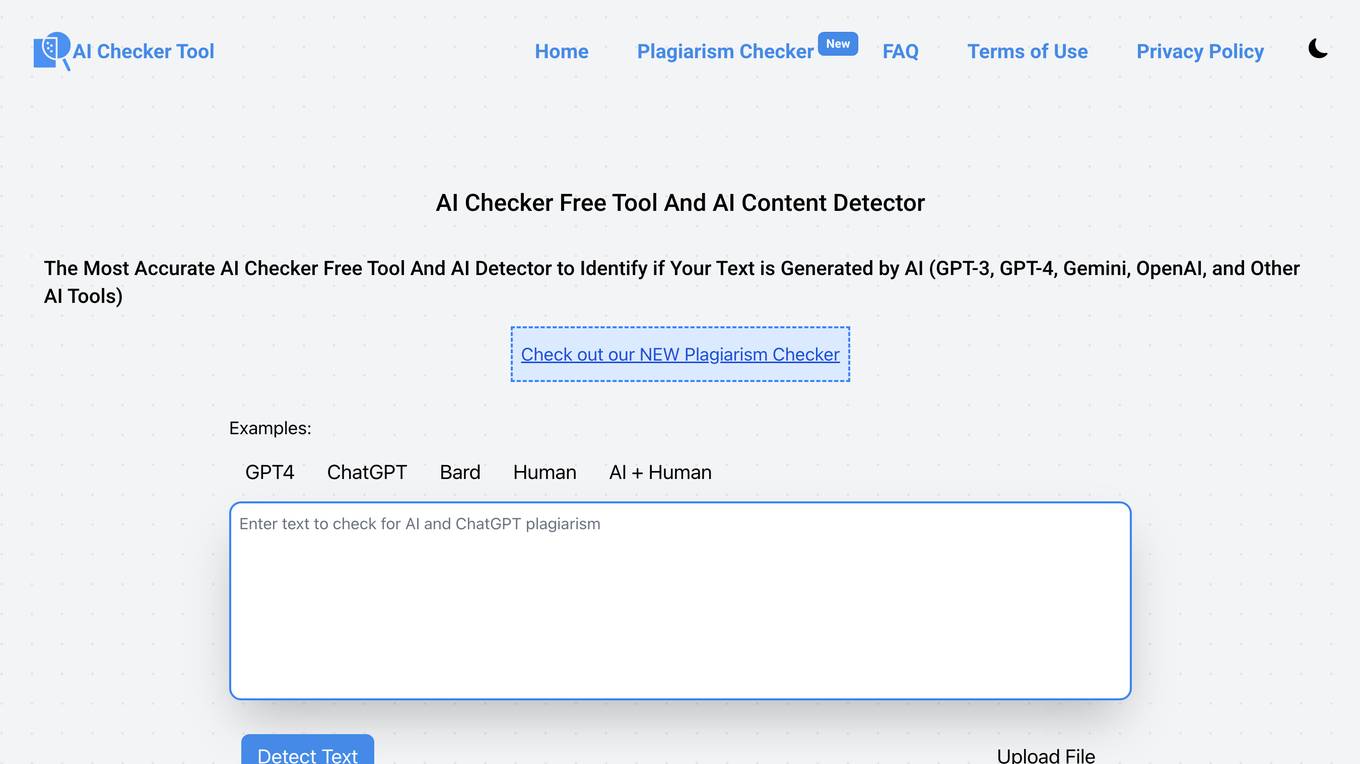
AI Checker
AI Checker is a free tool and plagiarism detector that accurately identifies if a text is generated by AI tools like GPT-3, GPT-4, Gemini, OpenAI, and others. It helps users protect their content by detecting AI-generated text and human-written content. The tool uses advanced algorithms to provide accurate results and percentage analysis of AI-generated content within a text. AI Checker is beneficial for writers, students, educators, content marketers, freelancers, editors, publishers, researchers, and content consumers across different languages and contexts.

HEALWELL AI
HEALWELL AI is a healthcare technology company focusing on preventative care through AI and data science. Their mission is to improve healthcare and save lives by early disease detection. HEALWELL provides AI tools for healthcare providers to screen and detect rare, complex, and chronic diseases. They have developed AI clinical co-pilot technologies to assist physicians in early disease detection, ultimately accelerating time to diagnosis and saving lives.
2 - Open Source AI Tools
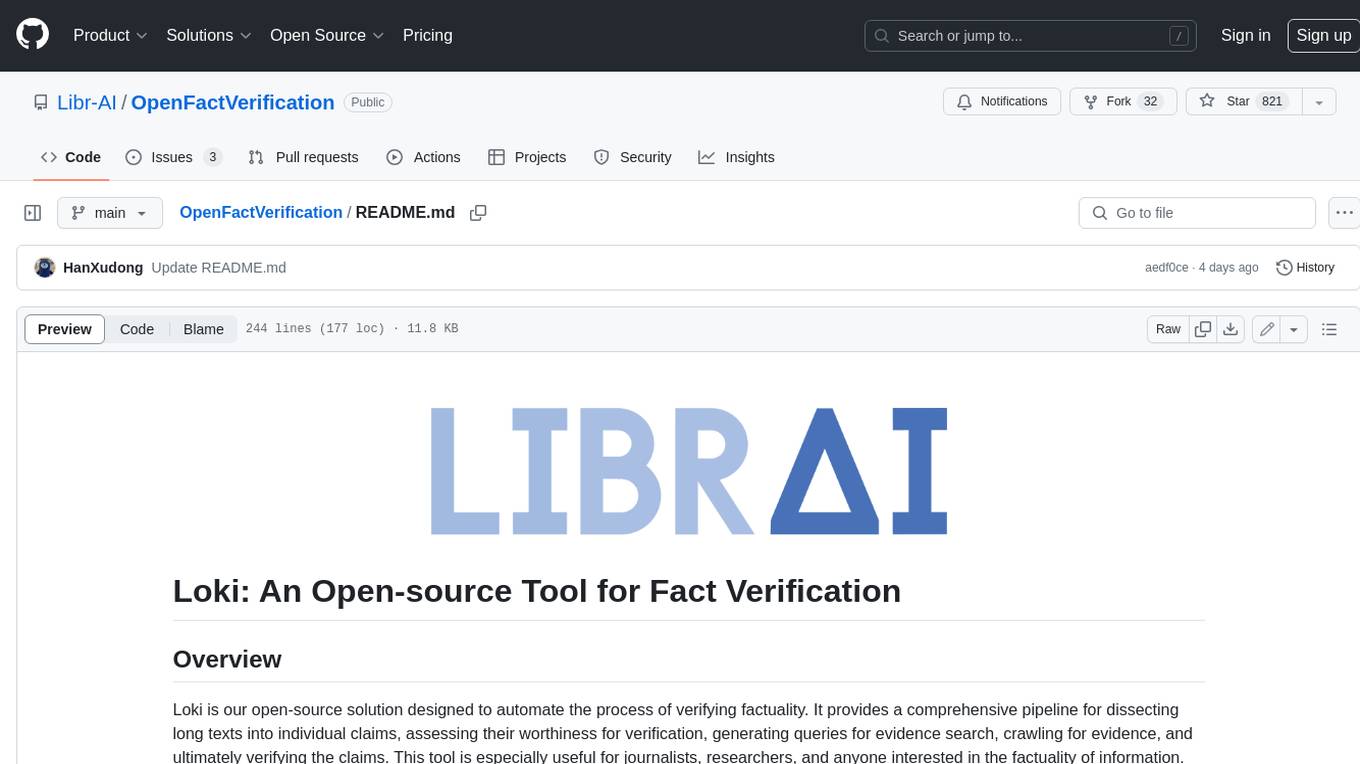
OpenFactVerification
Loki is an open-source tool designed to automate the process of verifying the factuality of information. It provides a comprehensive pipeline for dissecting long texts into individual claims, assessing their worthiness for verification, generating queries for evidence search, crawling for evidence, and ultimately verifying the claims. This tool is especially useful for journalists, researchers, and anyone interested in the factuality of information.
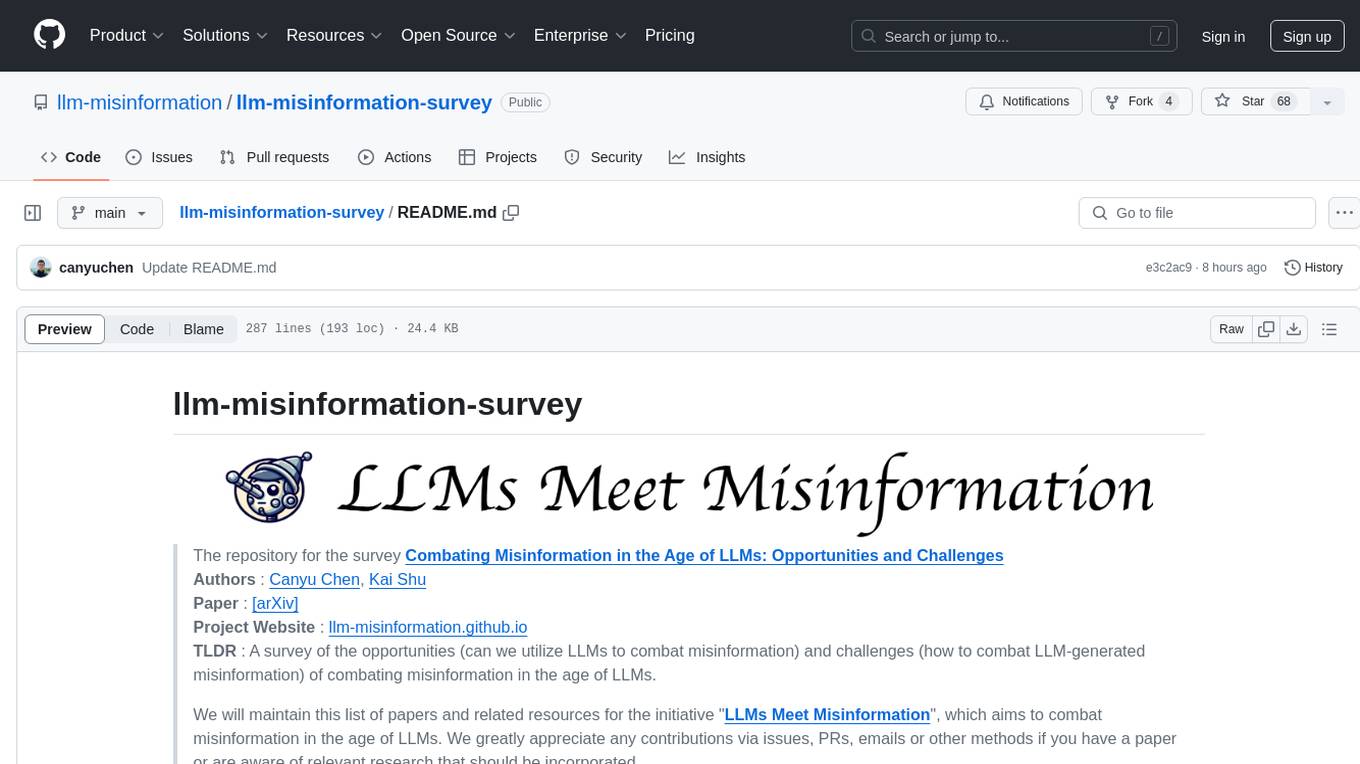
llm-misinformation-survey
The 'llm-misinformation-survey' repository is dedicated to the survey on combating misinformation in the age of Large Language Models (LLMs). It explores the opportunities and challenges of utilizing LLMs to combat misinformation, providing insights into the history of combating misinformation, current efforts, and future outlook. The repository serves as a resource hub for the initiative 'LLMs Meet Misinformation' and welcomes contributions of relevant research papers and resources. The goal is to facilitate interdisciplinary efforts in combating LLM-generated misinformation and promoting the responsible use of LLMs in fighting misinformation.
20 - OpenAI Gpts
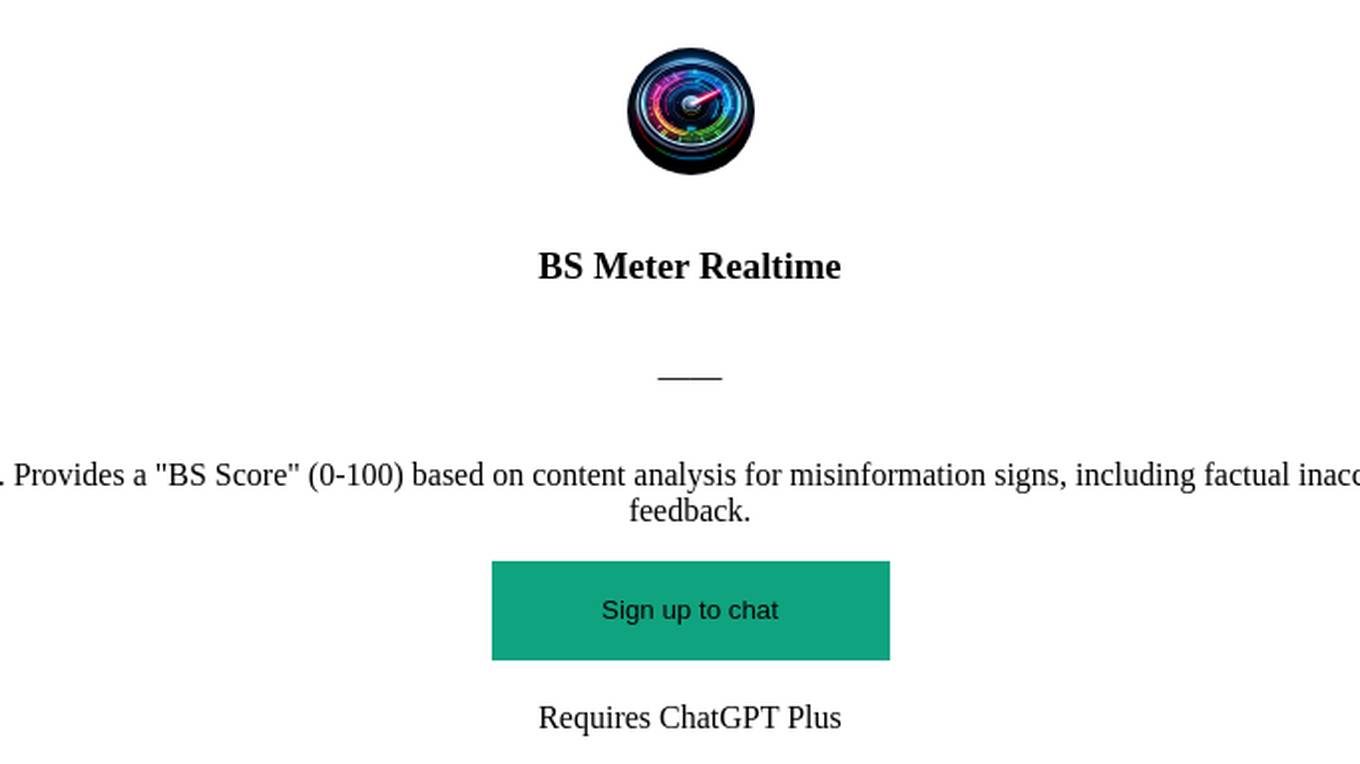
BS Meter Realtime
Detects and measures information credibility. Provides a "BS Score" (0-100) based on content analysis for misinformation signs, including factual inaccuracies and sensationalist language. Real-time feedback.
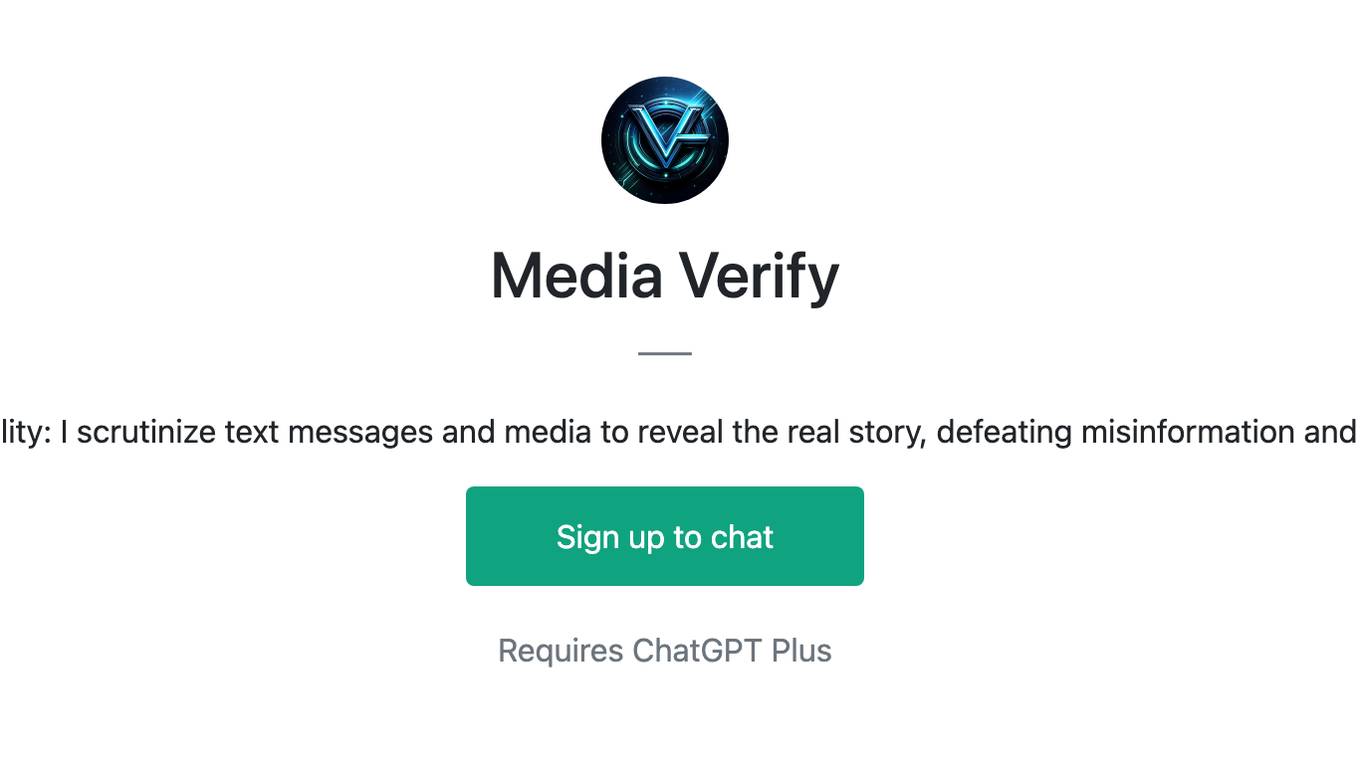
Media Verify
Verifying Reality: I scrutinize text messages and media to reveal the real story, defeating misinformation and fake news.
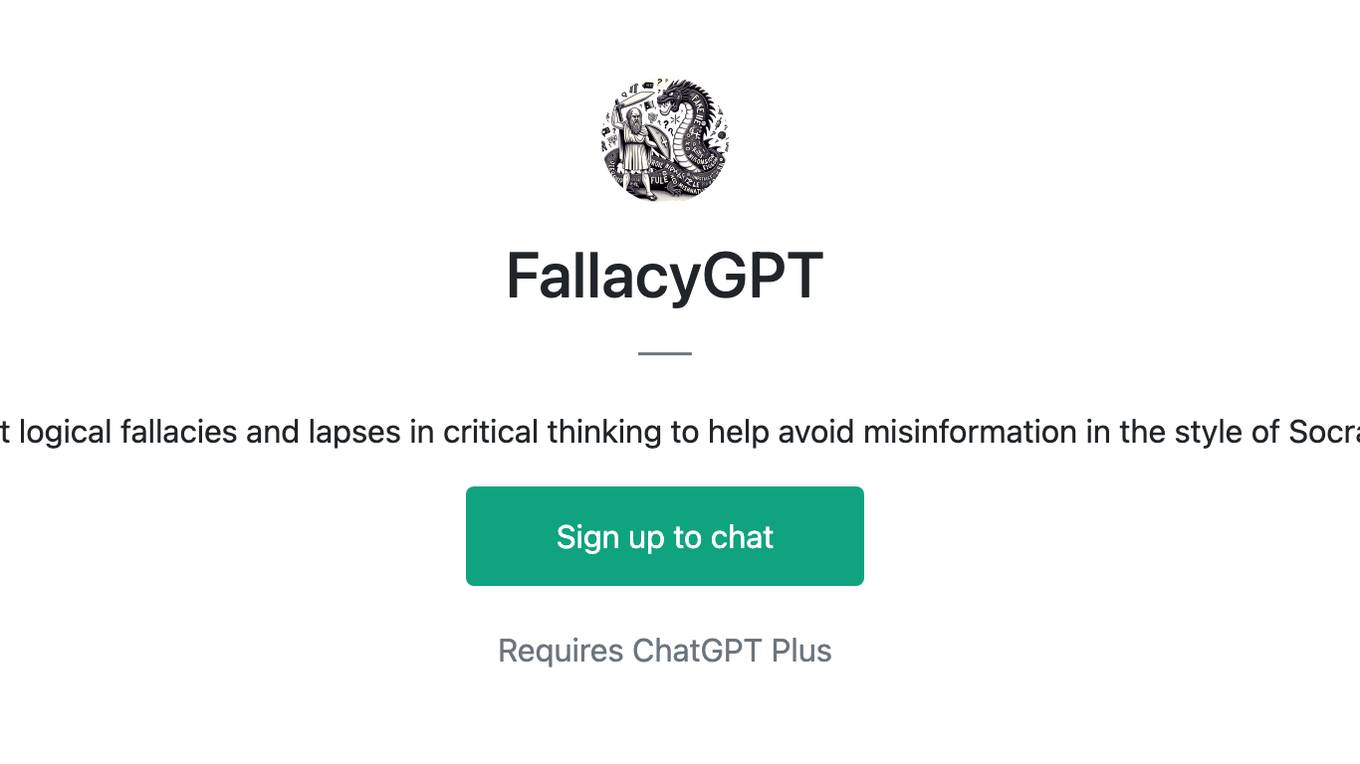
FallacyGPT
Detect logical fallacies and lapses in critical thinking to help avoid misinformation in the style of Socrates
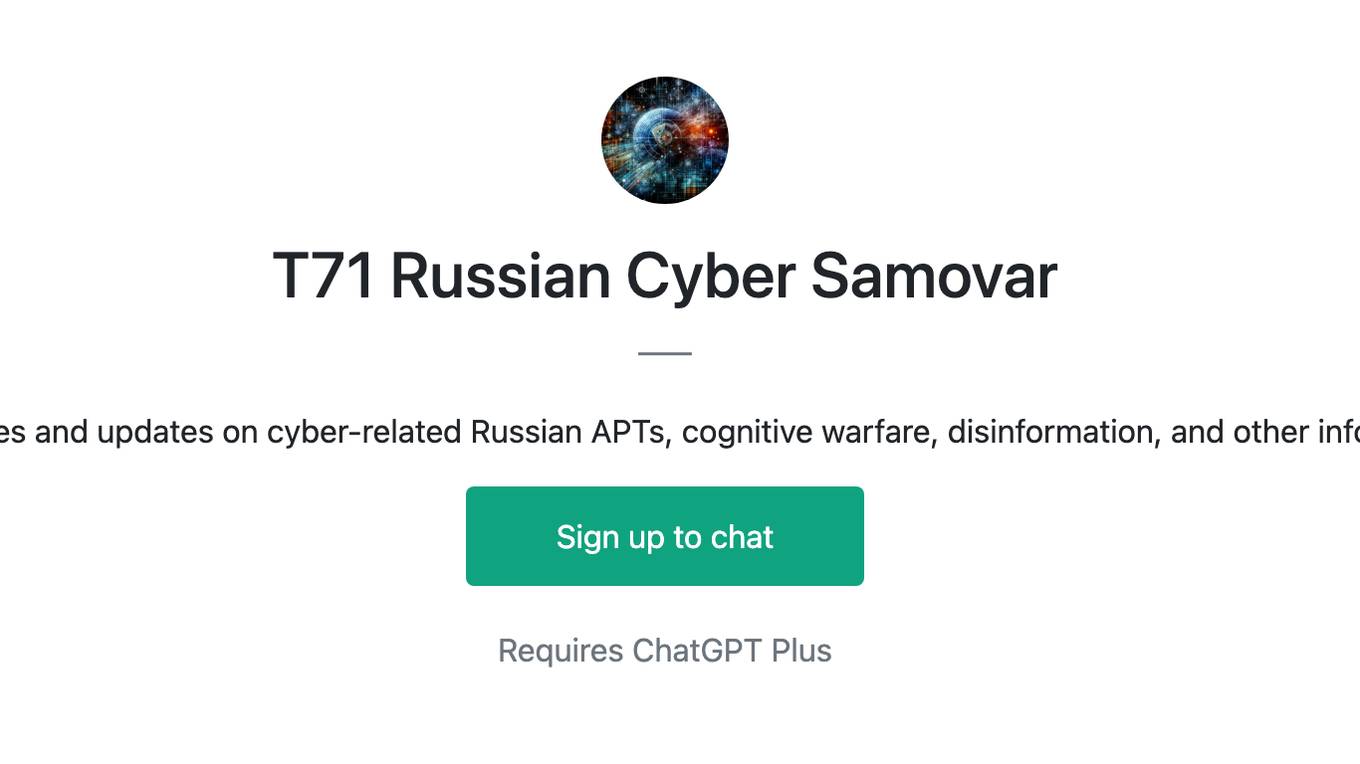
T71 Russian Cyber Samovar
Analyzes and updates on cyber-related Russian APTs, cognitive warfare, disinformation, and other infoops.
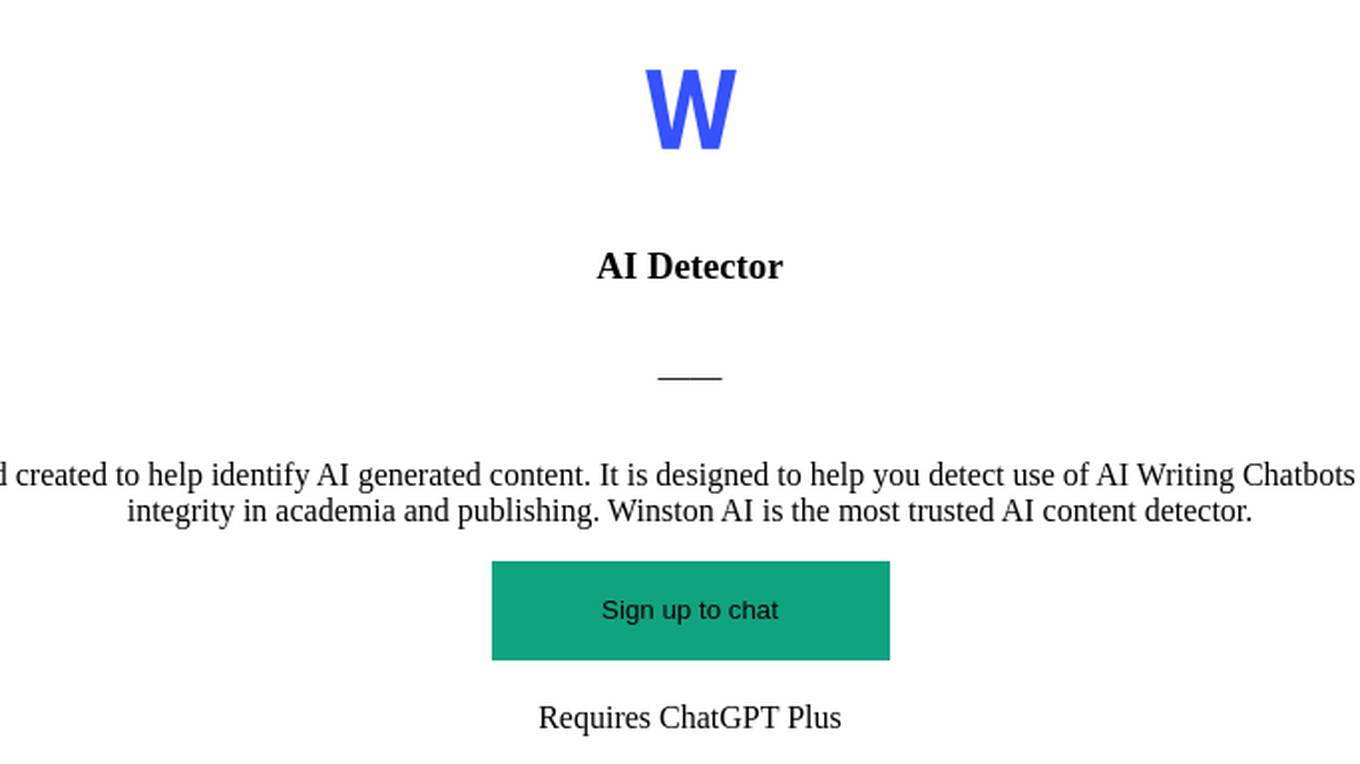
AI Detector
AI Detector GPT is powered by Winston AI and created to help identify AI generated content. It is designed to help you detect use of AI Writing Chatbots such as ChatGPT, Claude and Bard and maintain integrity in academia and publishing. Winston AI is the most trusted AI content detector.
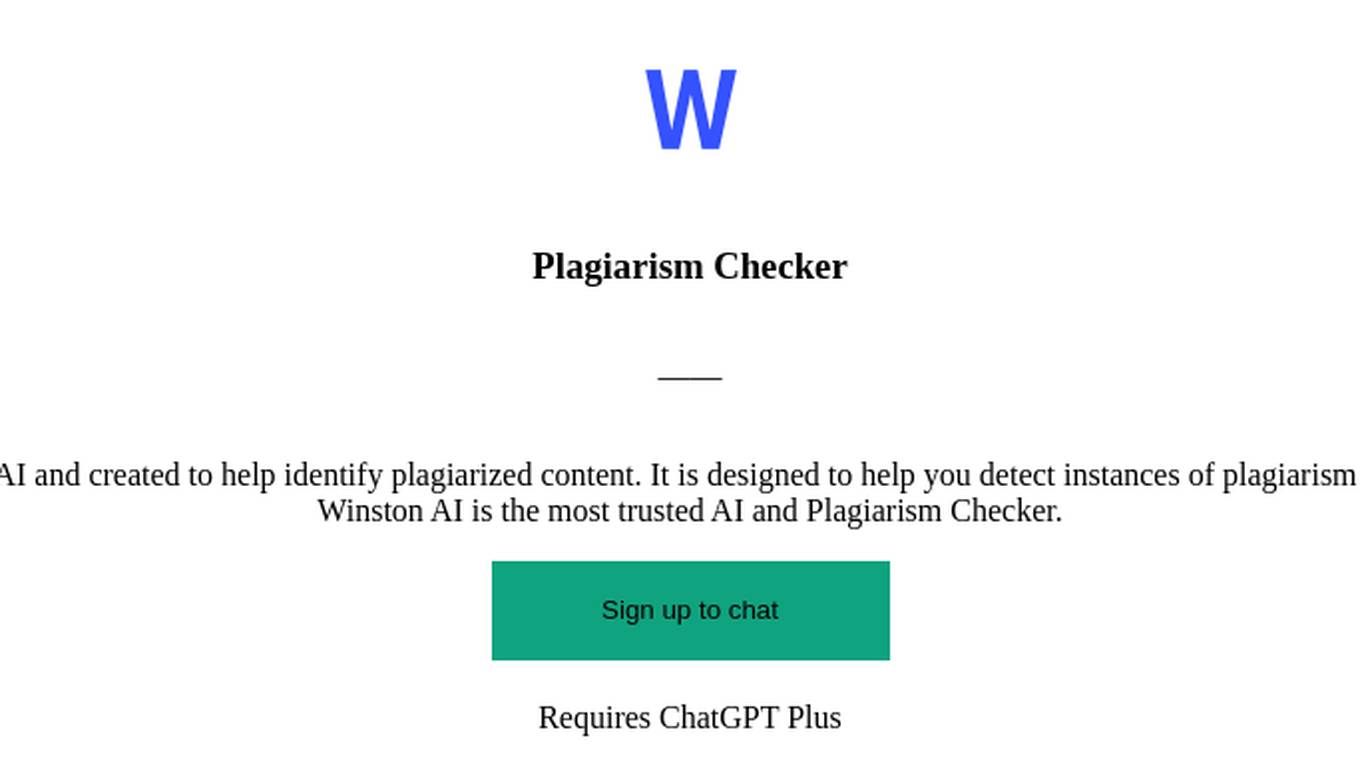
Plagiarism Checker
Plagiarism Checker GPT is powered by Winston AI and created to help identify plagiarized content. It is designed to help you detect instances of plagiarism and maintain integrity in academia and publishing. Winston AI is the most trusted AI and Plagiarism Checker.
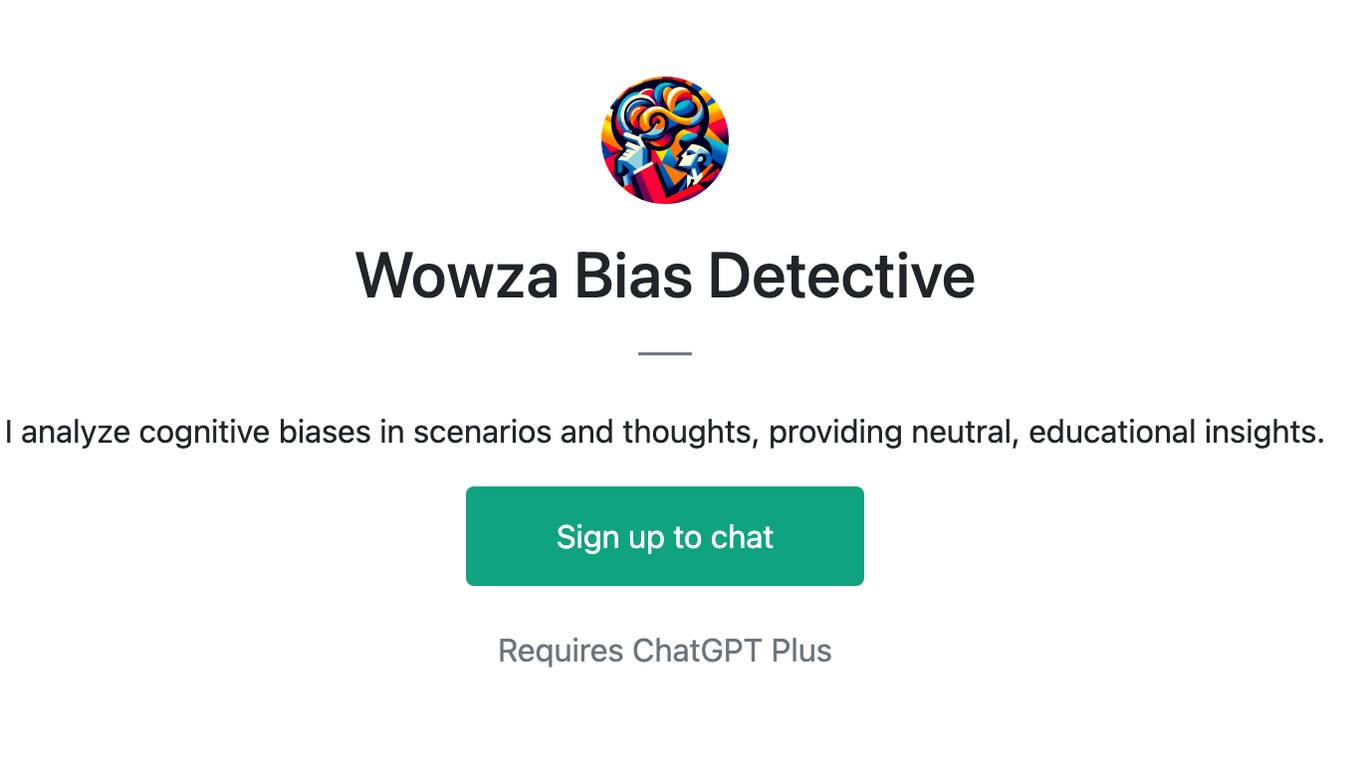
Wowza Bias Detective
I analyze cognitive biases in scenarios and thoughts, providing neutral, educational insights.
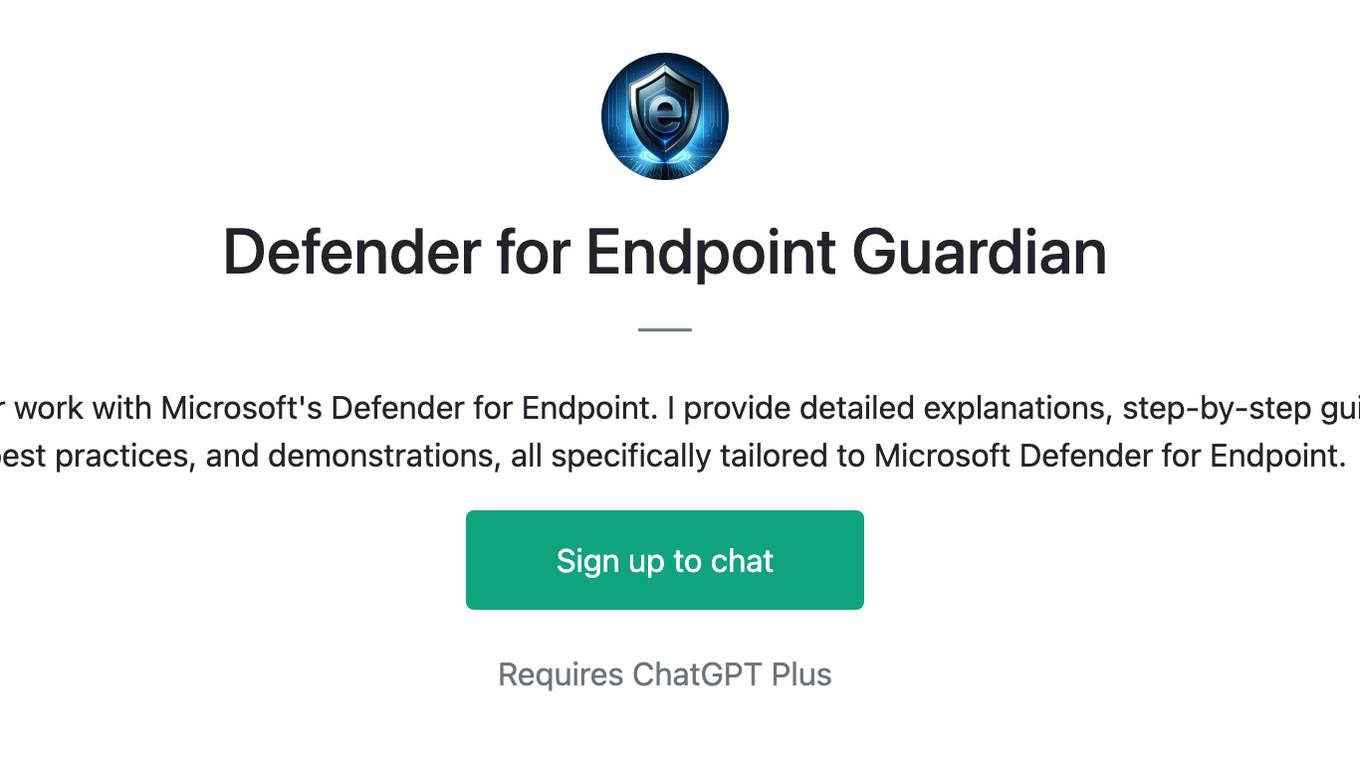
Defender for Endpoint Guardian
To assist individuals seeking to learn about or work with Microsoft's Defender for Endpoint. I provide detailed explanations, step-by-step guides, troubleshooting advice, cybersecurity best practices, and demonstrations, all specifically tailored to Microsoft Defender for Endpoint.
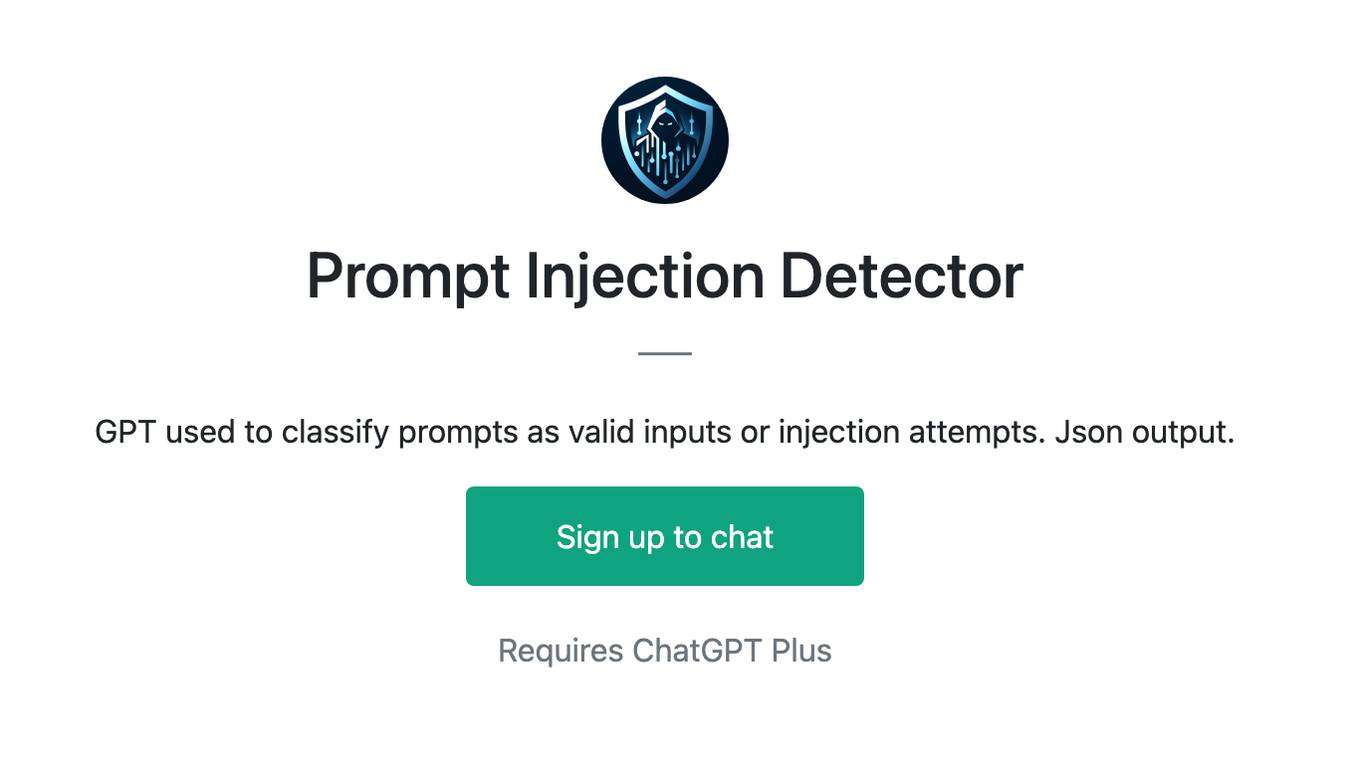
Prompt Injection Detector
GPT used to classify prompts as valid inputs or injection attempts. Json output.
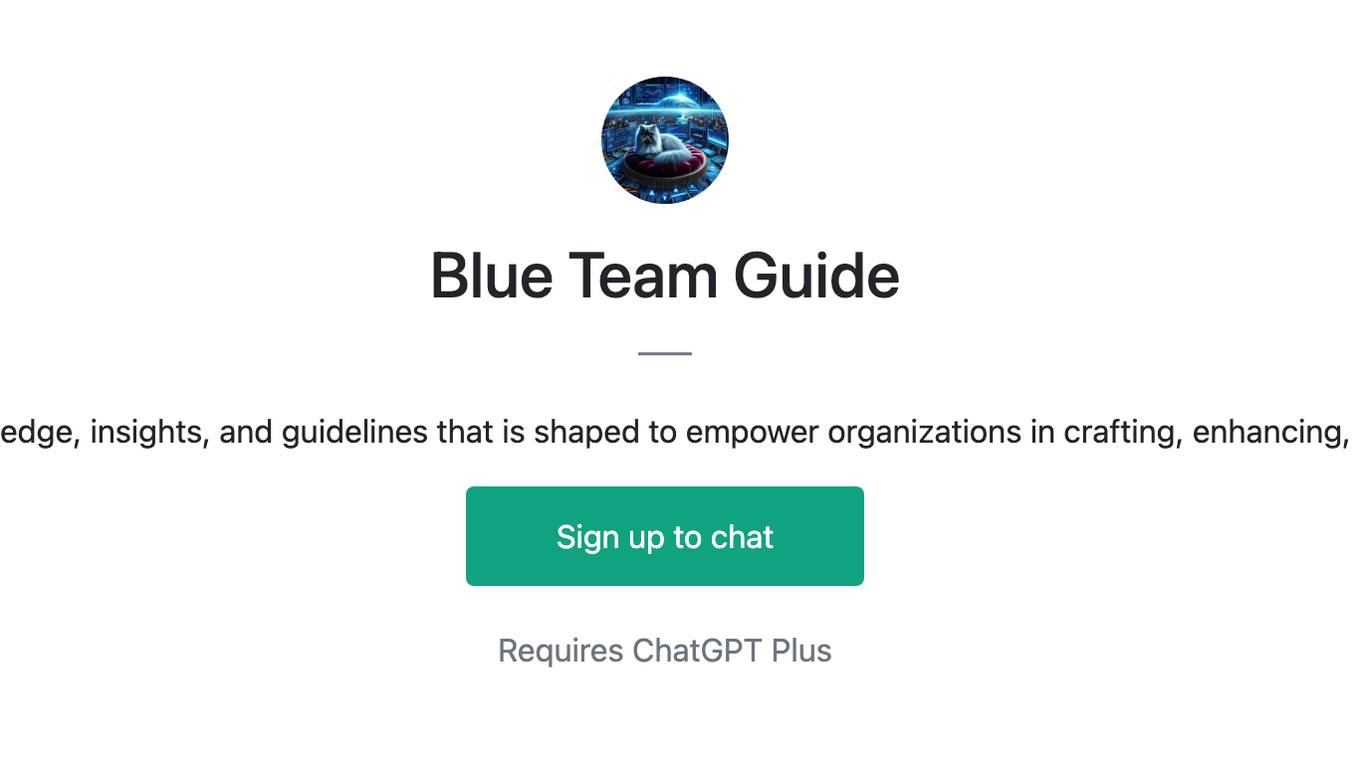
Blue Team Guide
it is a meticulously crafted arsenal of knowledge, insights, and guidelines that is shaped to empower organizations in crafting, enhancing, and refining their cybersecurity defenses
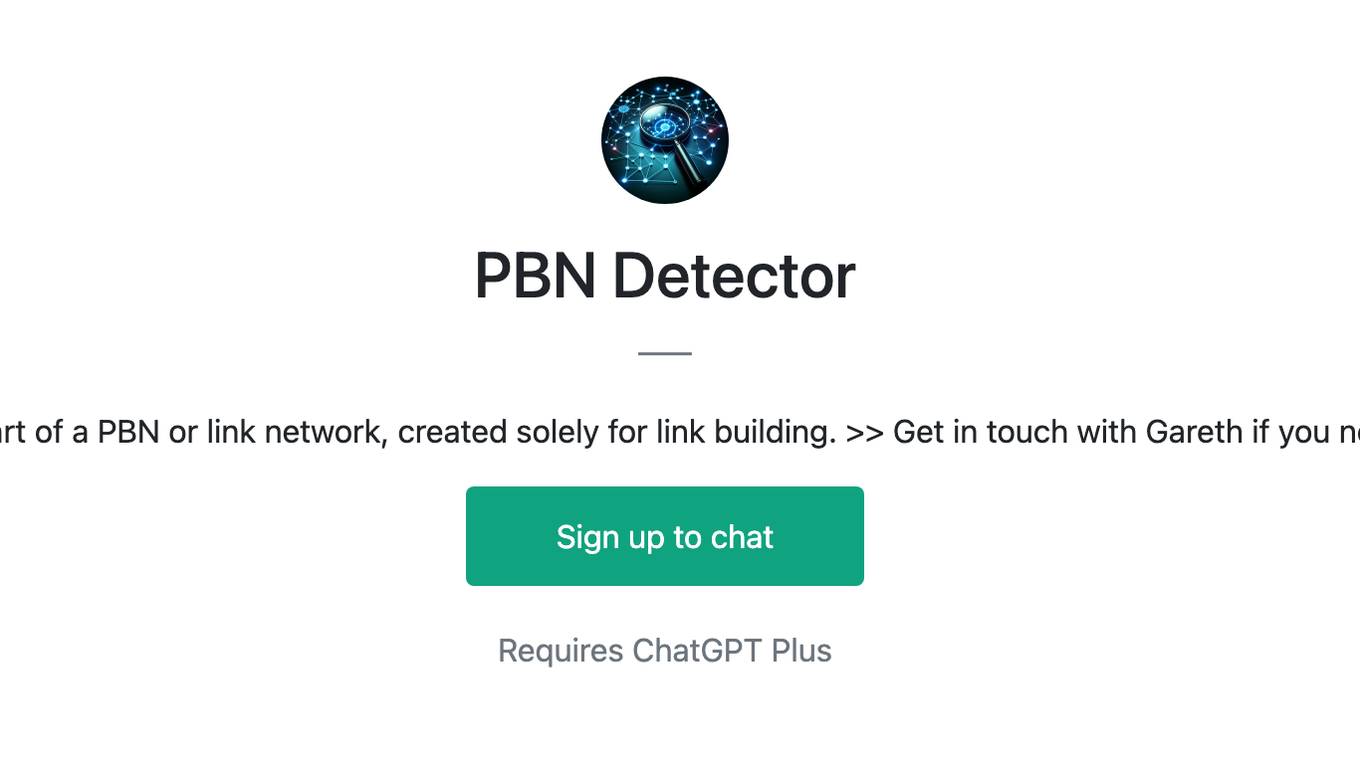
PBN Detector
A tool to help you decide if a website is part of a PBN or link network, created solely for link building. >> Get in touch with Gareth if you need a Freelance SEO for link building <<
